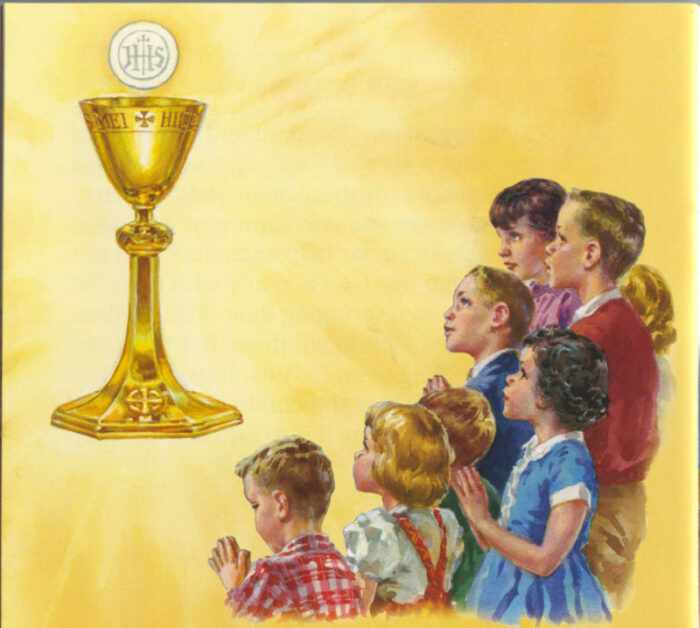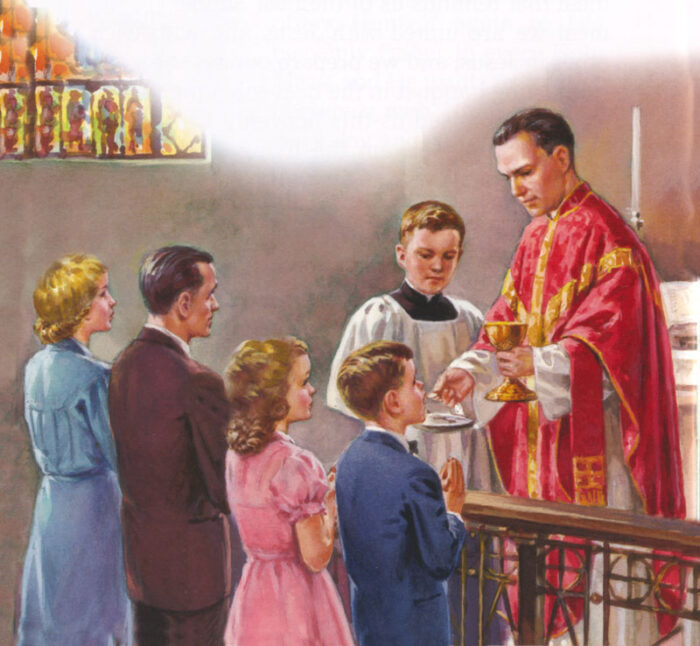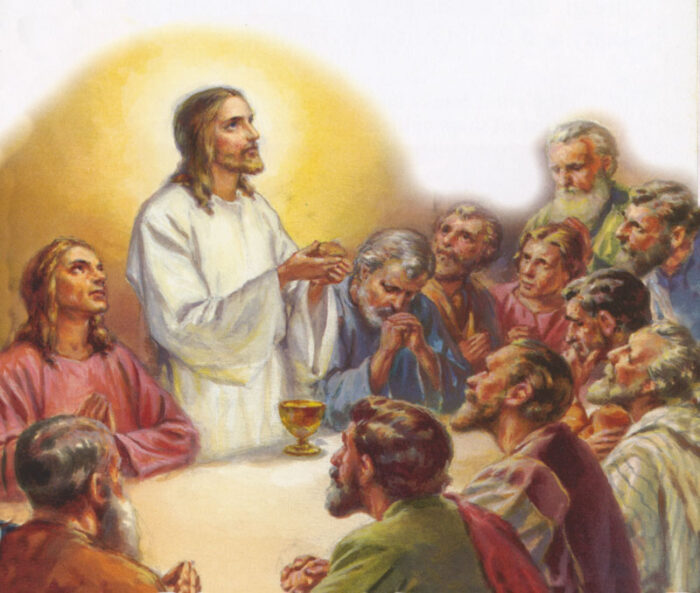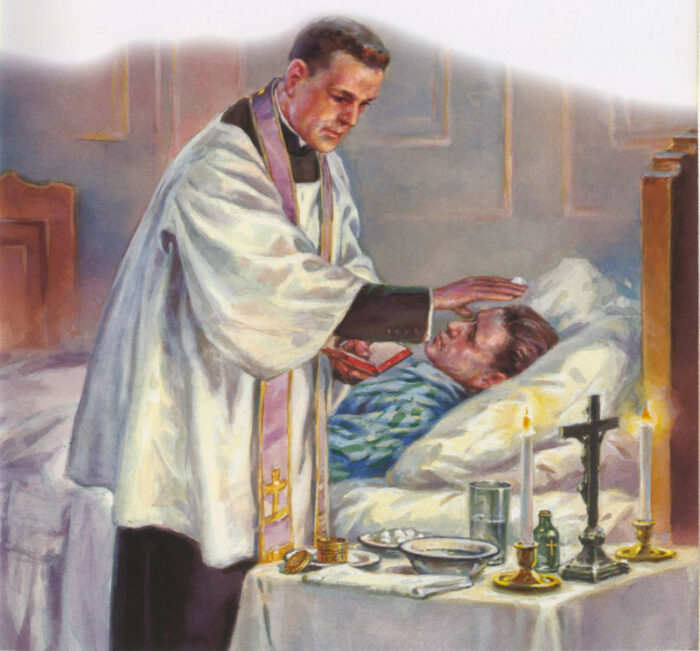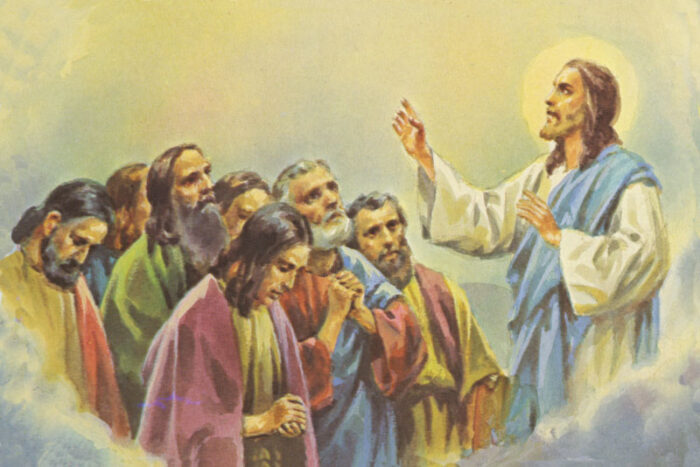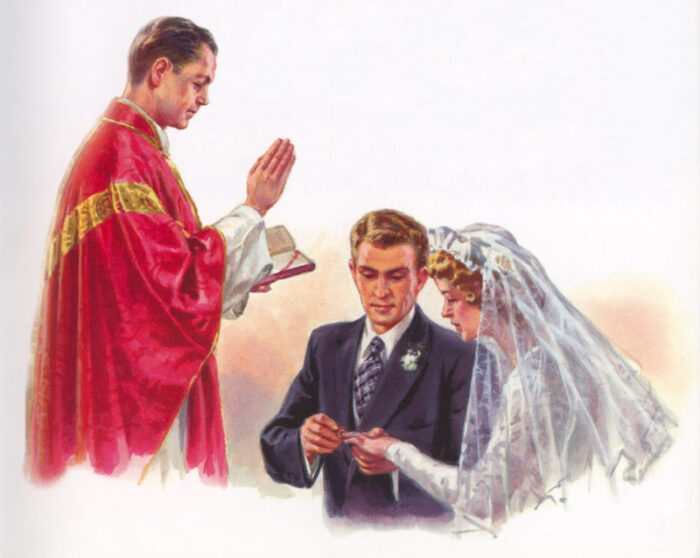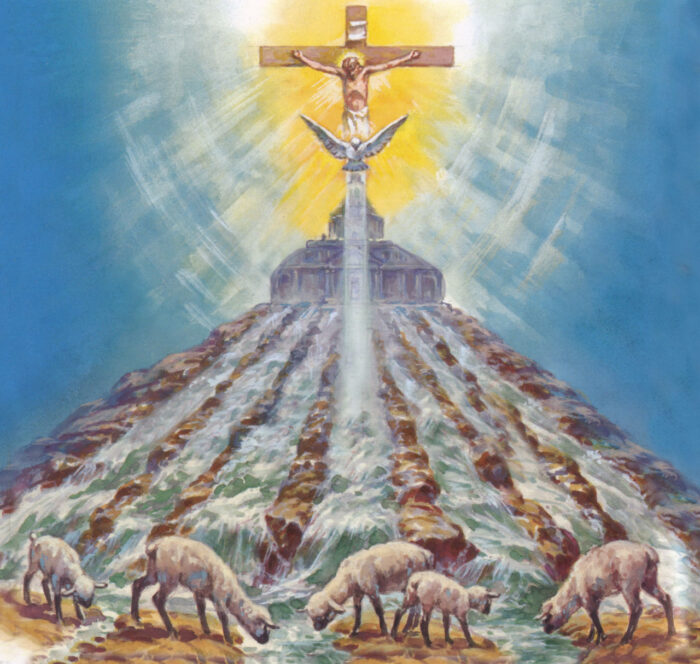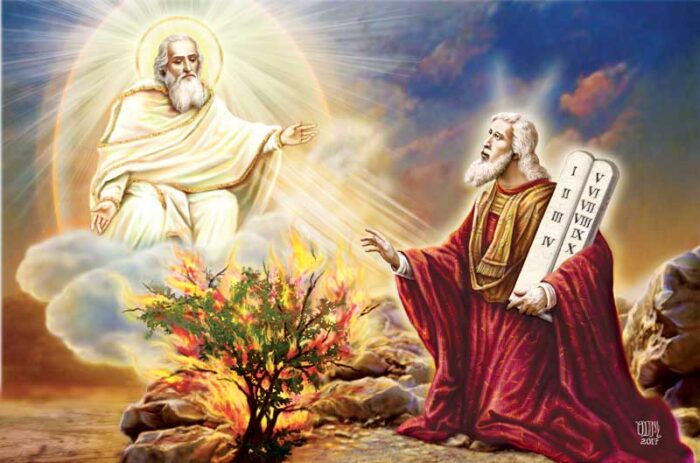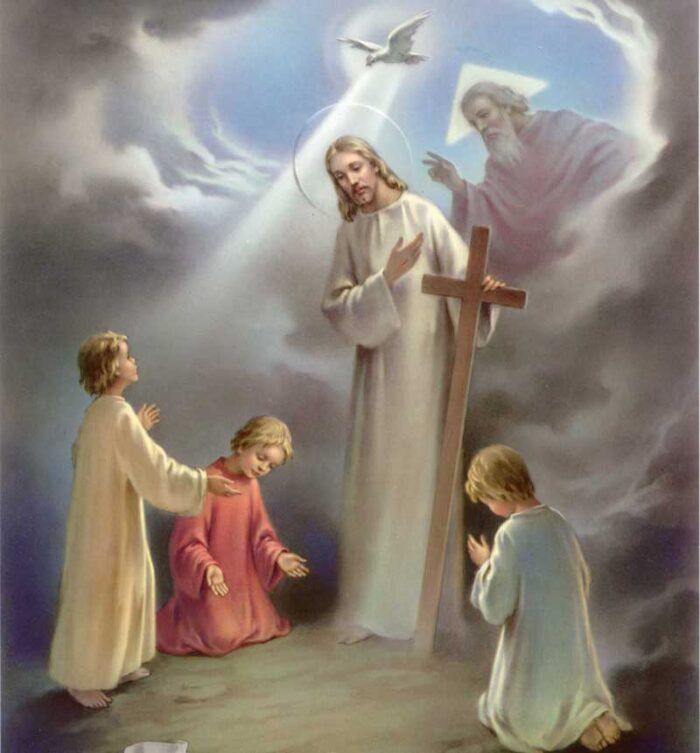Catechism Lessons
according to the Tradition of the Gospel and the Church
“Go, teach all nations...teaching them to observe all that I have commanded you.”
Holy Gospel of Jesus Christ,
St. Matthew 28:19-20
Lessons 25 to 28 ⇓
Lessons 29 to 32 ⇓
Lessons 33 to 36 ⇓
Lesson 25: The Sacrament of the Holy Eucharist
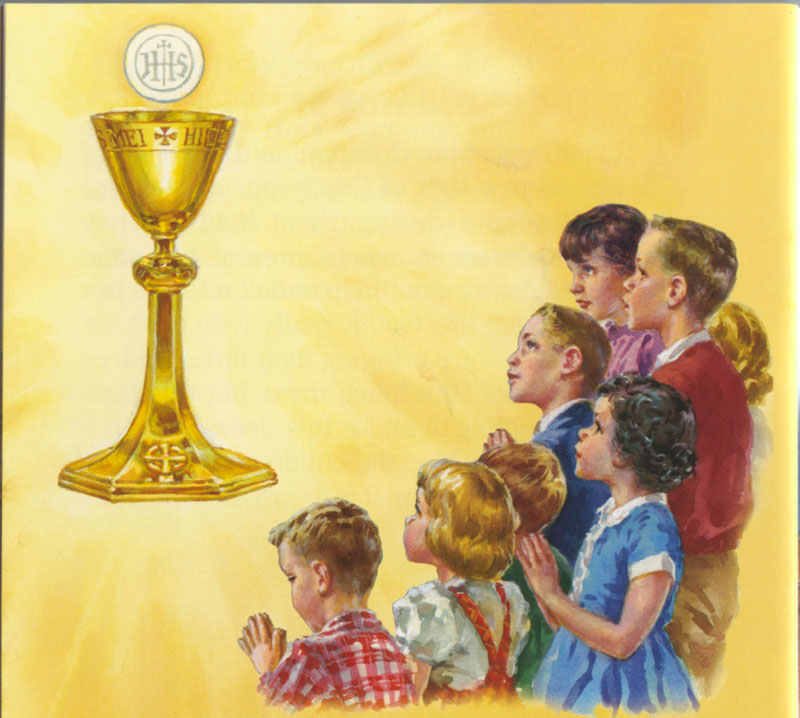
282. — What is the Holy Eucharist?
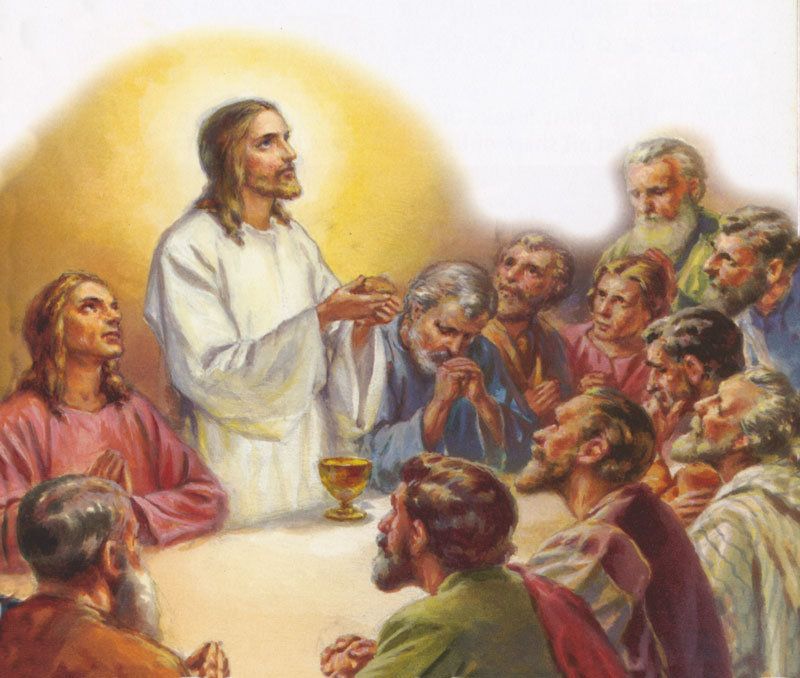
283. — When did Jesus Christ institute the Holy Eucharist?
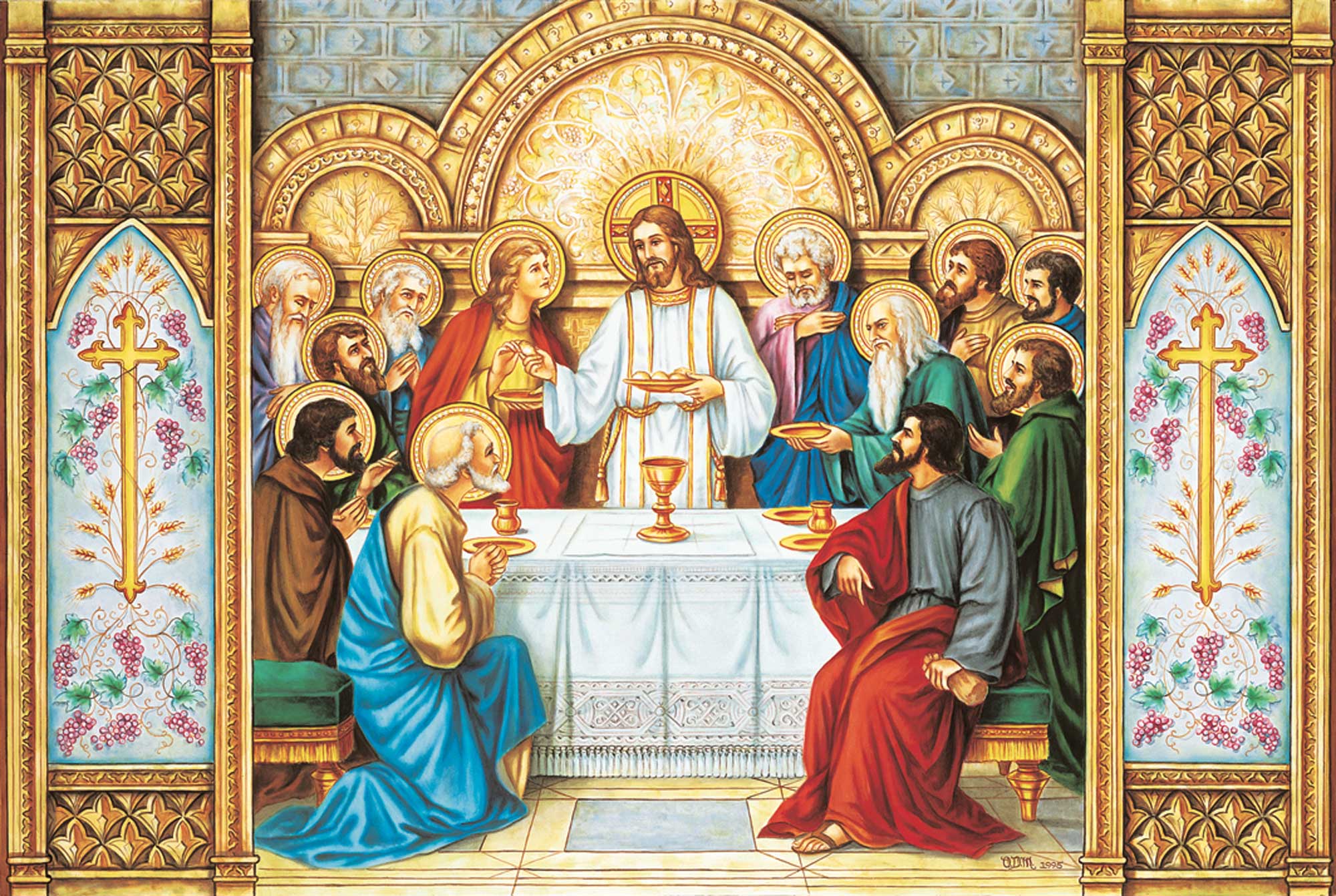
284. — Who was present when Jesus Christ instituted the Holy Eucharist?
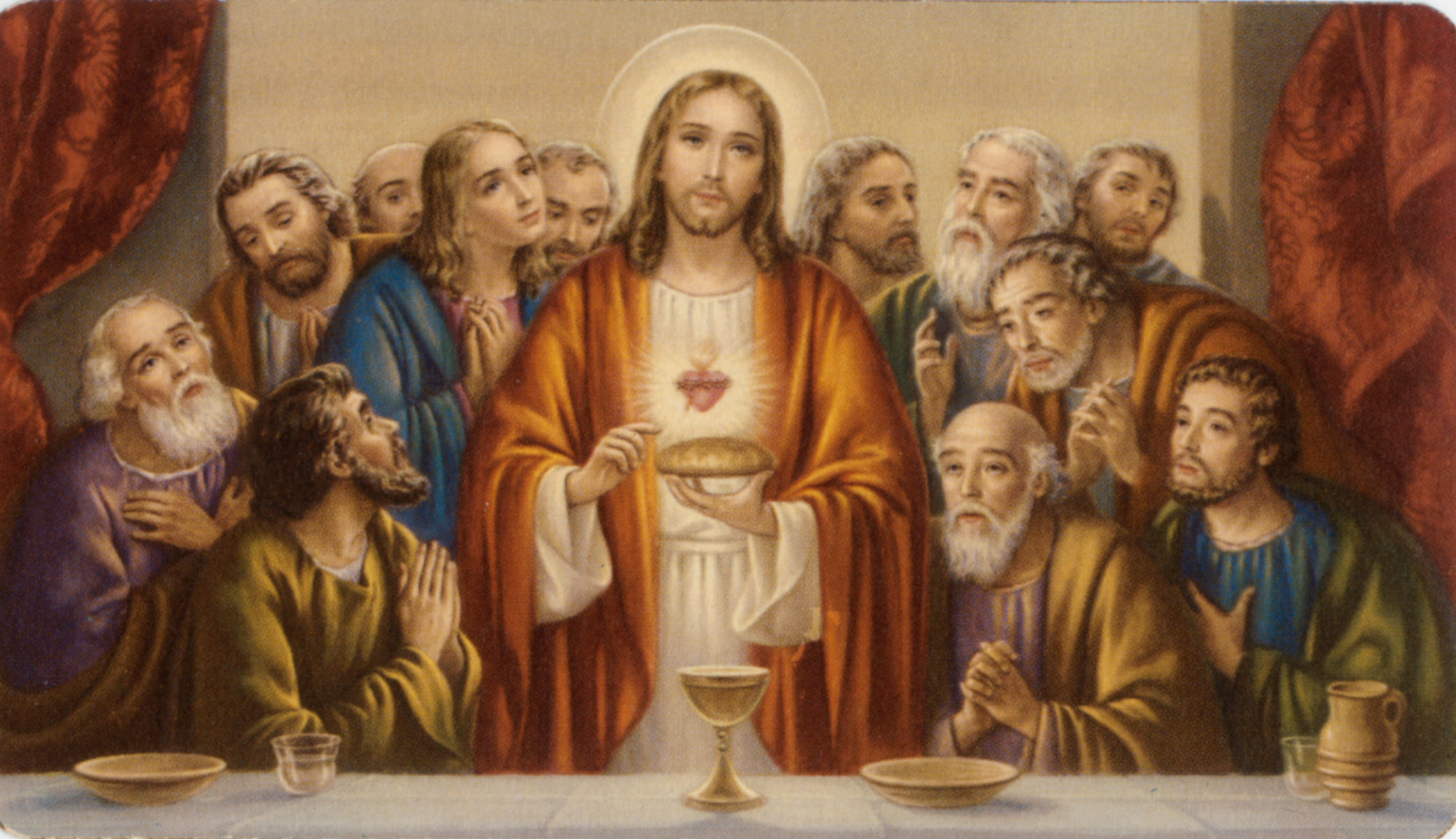
285. — What did Our Lord do to institute the Holy Eucharist?
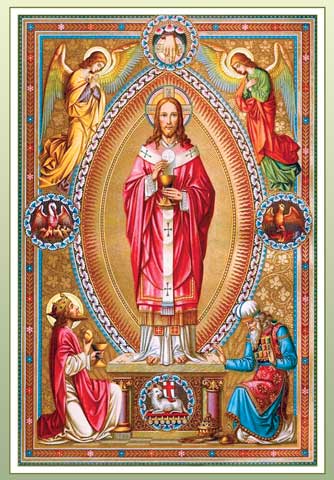
286. — What happened when Our Lord said, This is My Body; this is My Blood?
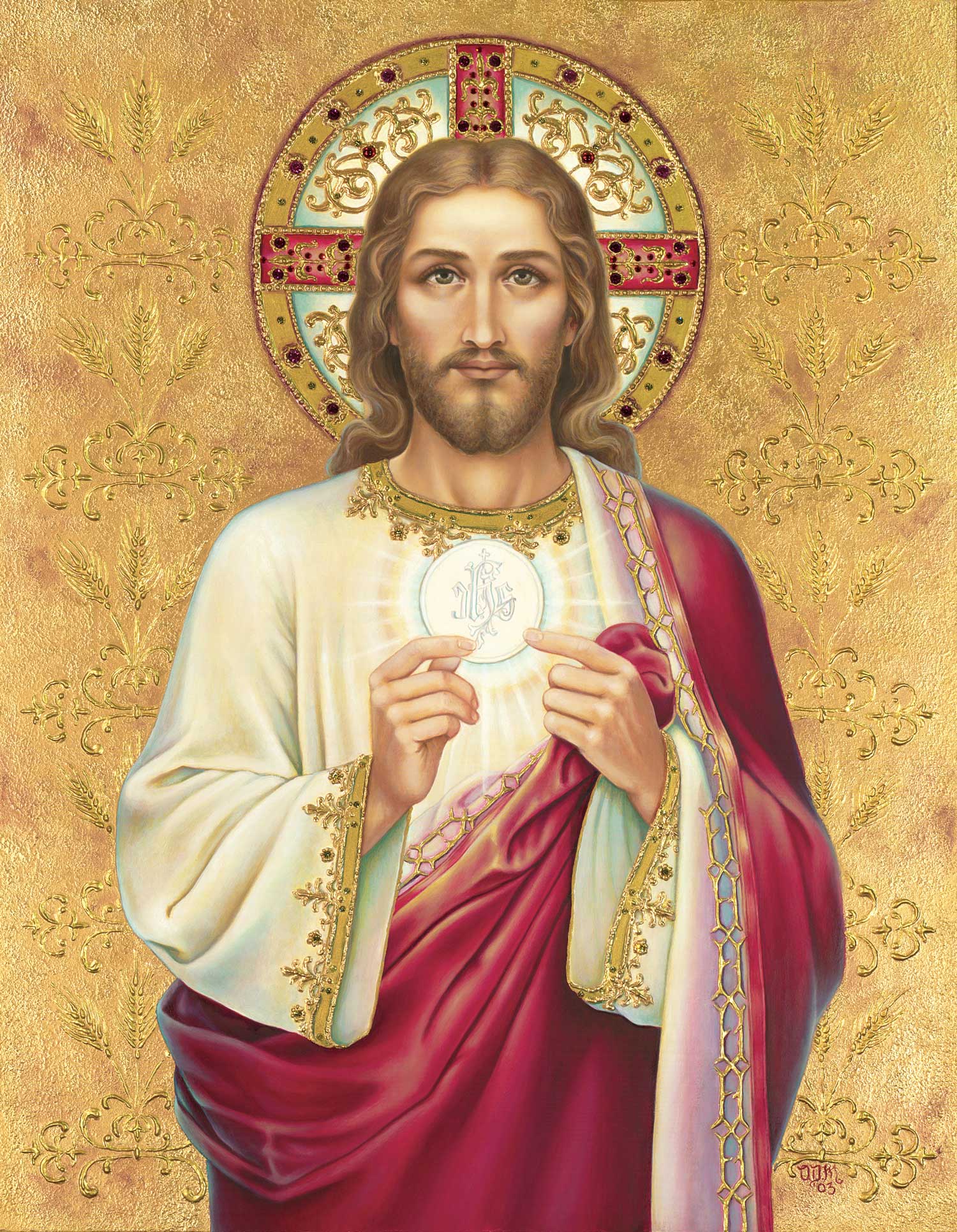
287. — Is Jesus Christ whole and entire under the form of bread and whole and entire under the form of wine?

288. — What remains of the bread and wine after their substance has been changed into the substance of the Body and Blood of Jesus Christ?
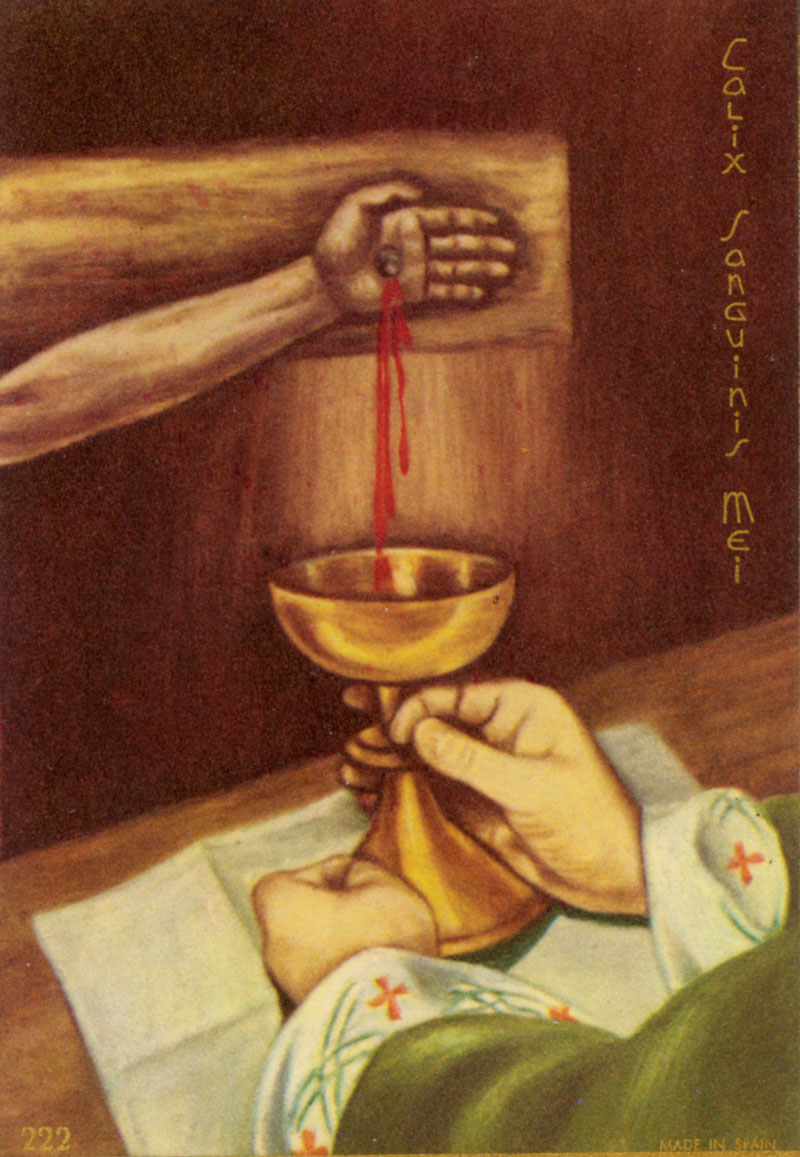
289. — What do we mean by the appearances of bread and wine?
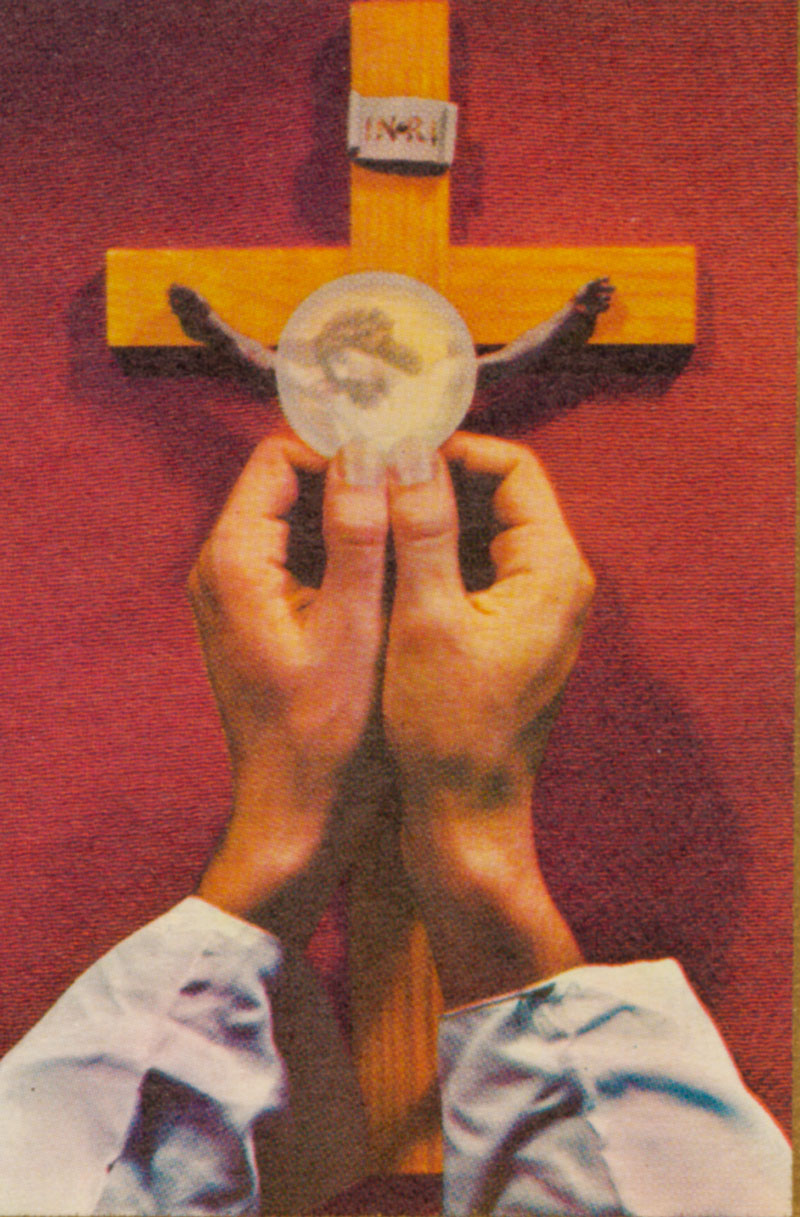
290. — What is this change of the bread and wine into the Body and Blood of Jesus Christ called?
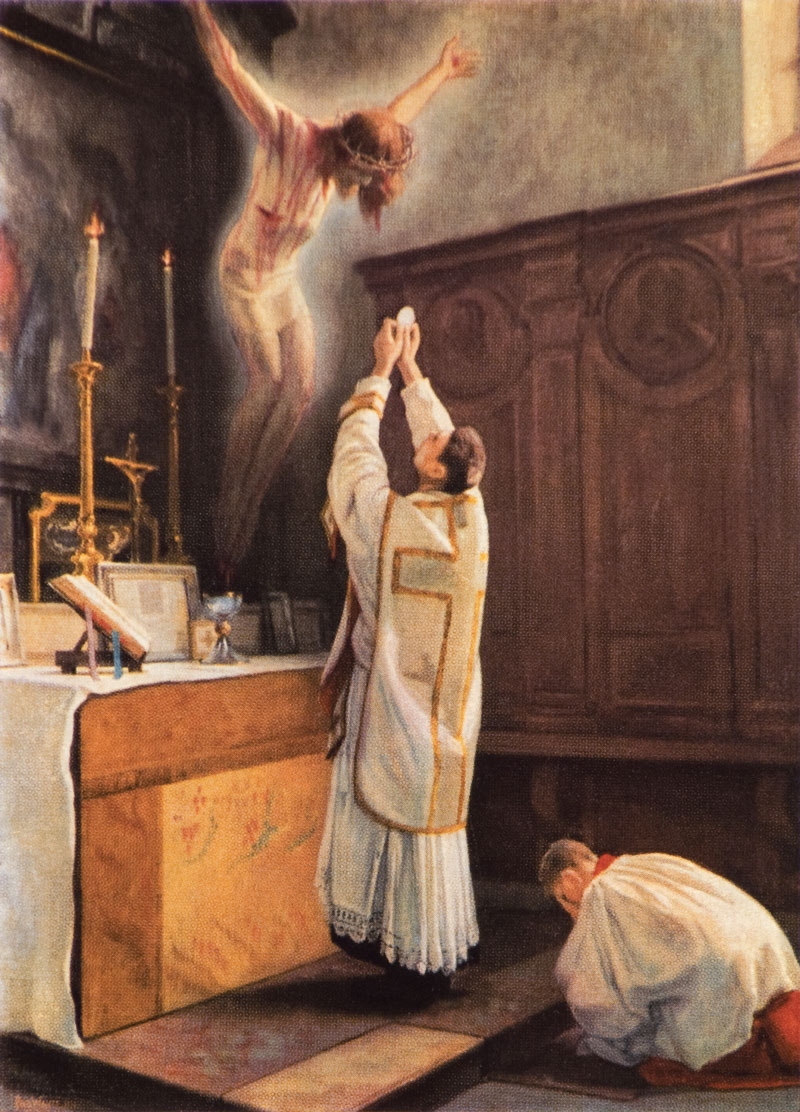
291. — How was the substance of the bread and wine changed into the substance of the Body and Blood of Jesus Christ?
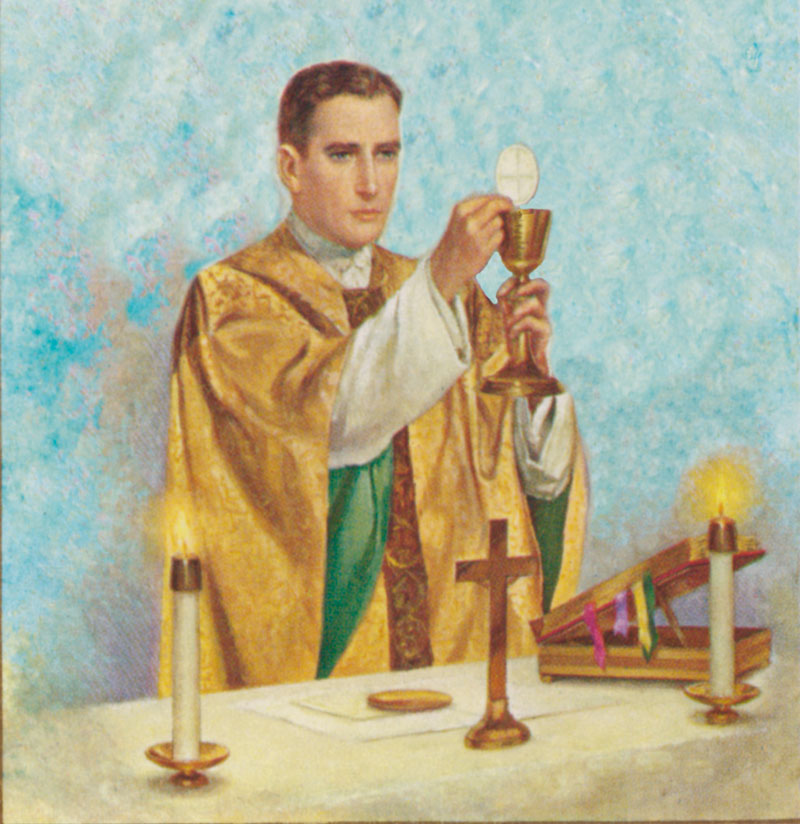
292. — Does this change of bread and wine into the Body and Blood of Jesus Christ continue to be made in the Church?
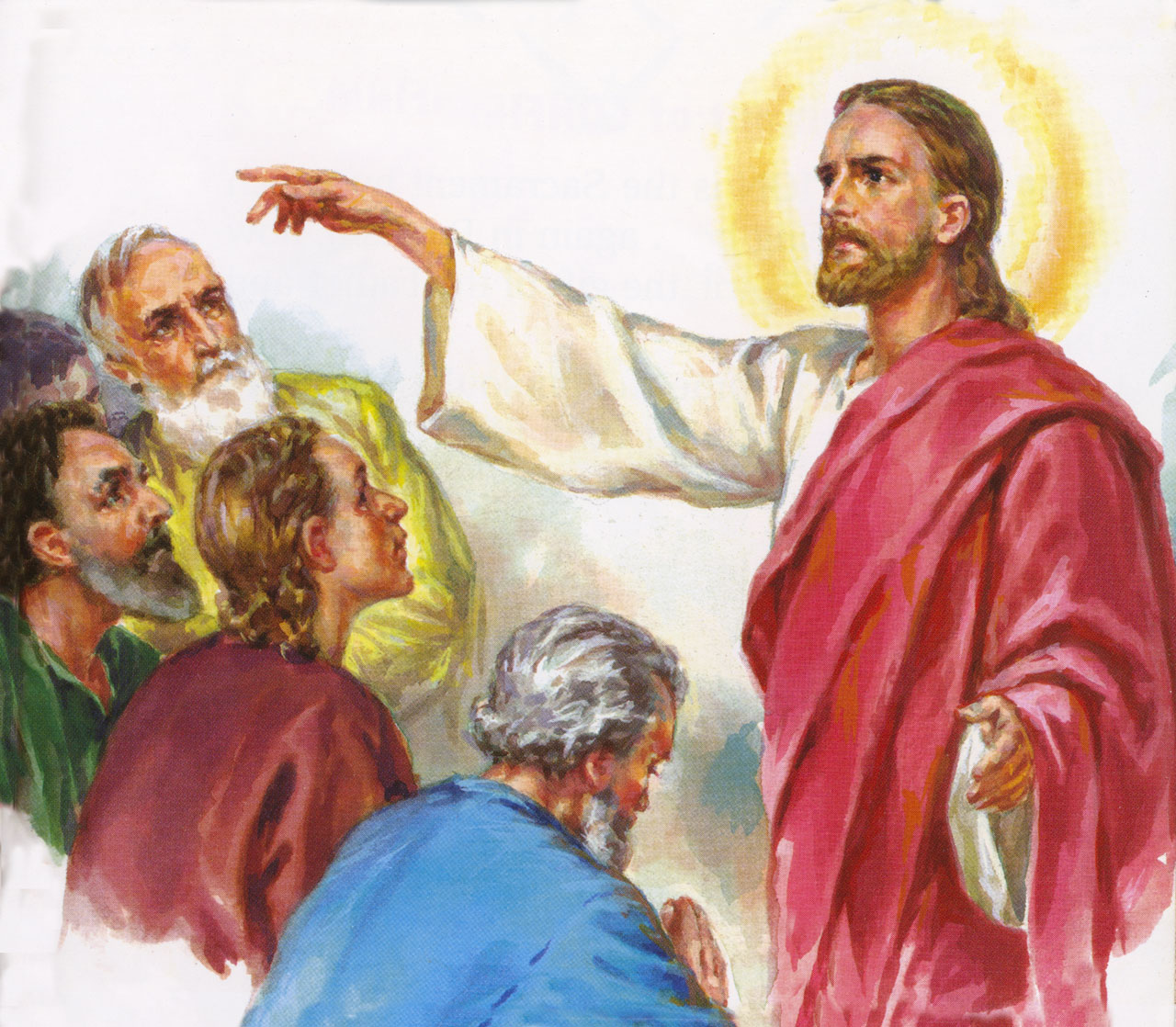
293. — When did Jesus Christ give His priests the power to change bread and wine into His Body and Blood?
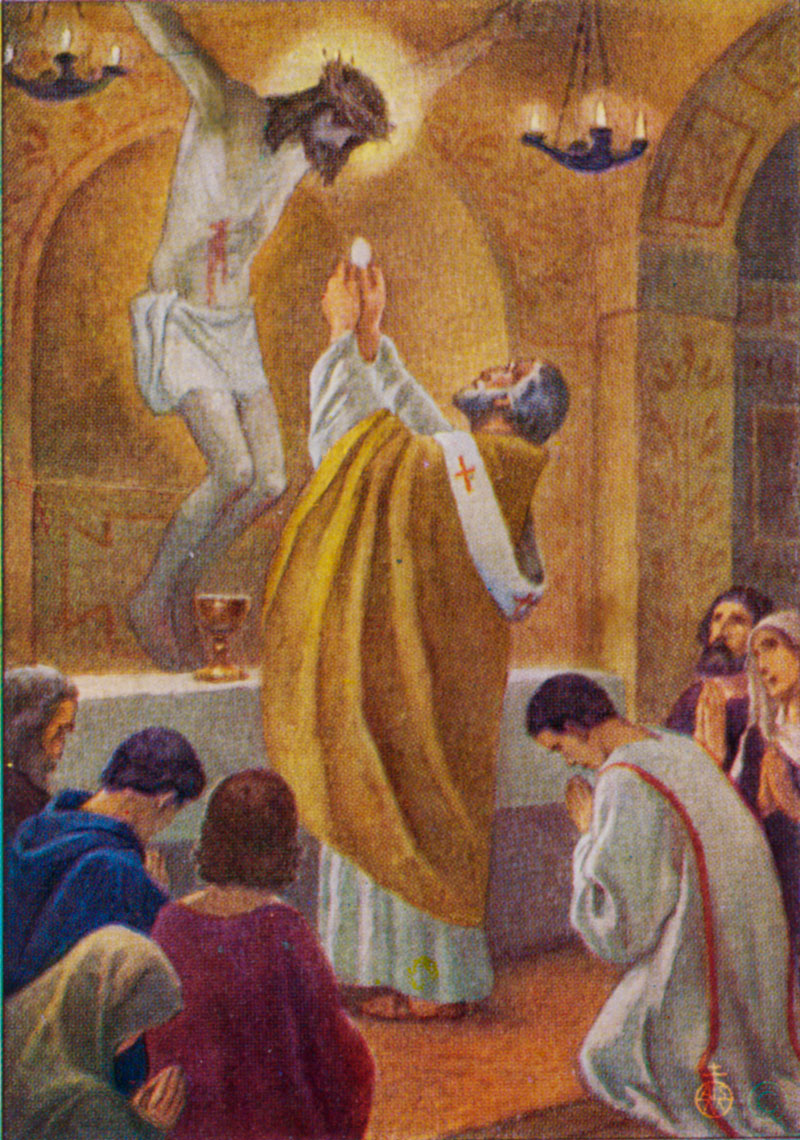
294. — When do priests exercise this power to change bread and wine into the Body and Blood of Jesus Christ?
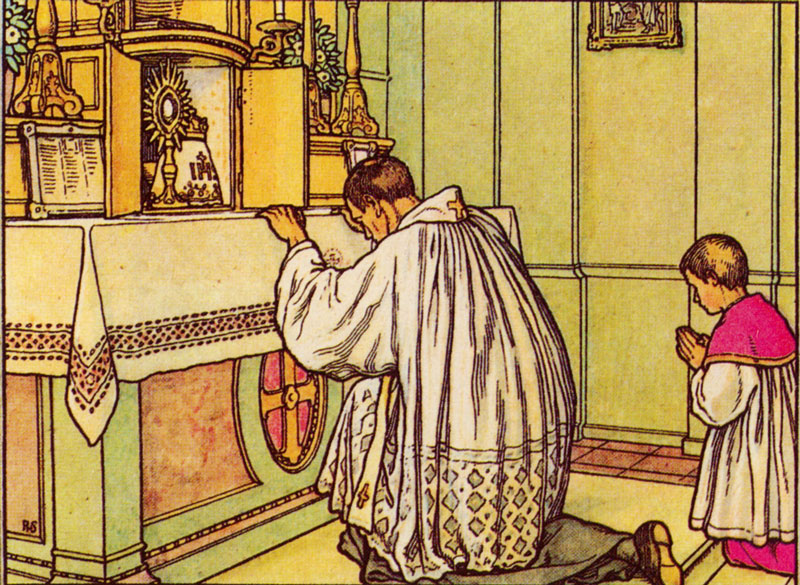
295. — Must we adore the Body and Blood of Our Lord in the Holy Eucharist?
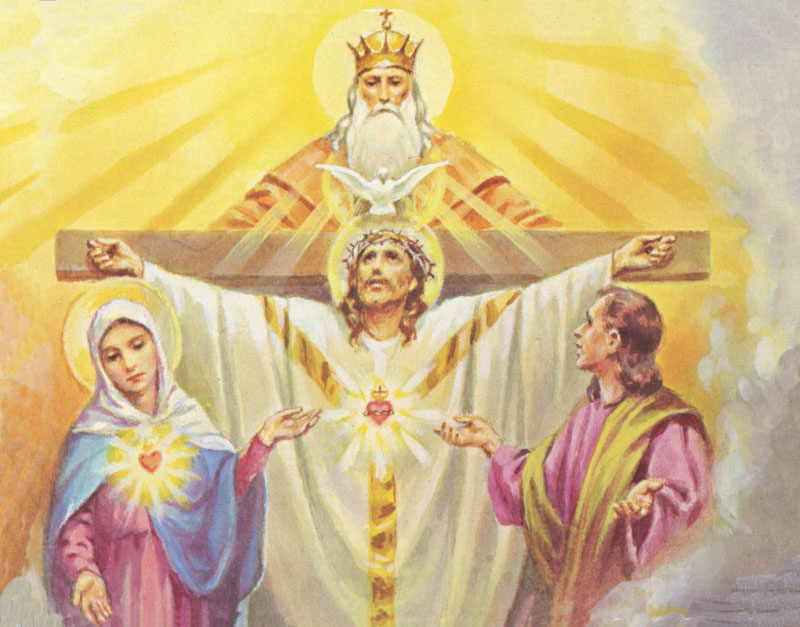
296. — Does Jesus Christ leave Heaven to come into the Holy Eucharist?
Click on the dots to match the text to the audio.
Audio of the Lesson
Glossary
The word Transubstantiation means: change of a substance into another substance.
Lesson 26: The Ends for which the Holy Eucharist was instituted

297. — Why did Jesus Christ institute the Holy Eucharist?
Jesus Christ instituted the Holy Eucharist:
1. To unite us to Himself and to prove His love for us.
2. To increase grace in our soul and to strengthen us against evil.
3. To give us a pledge of eternal life and of a glorious resurrection.
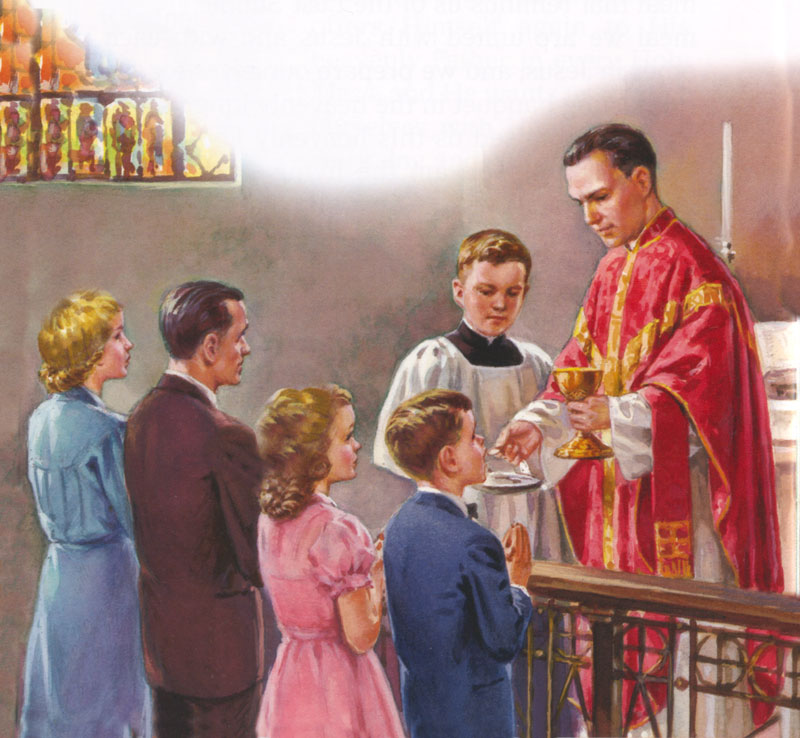
298. — How are we united to Jesus Christ in the Holy Eucharist?
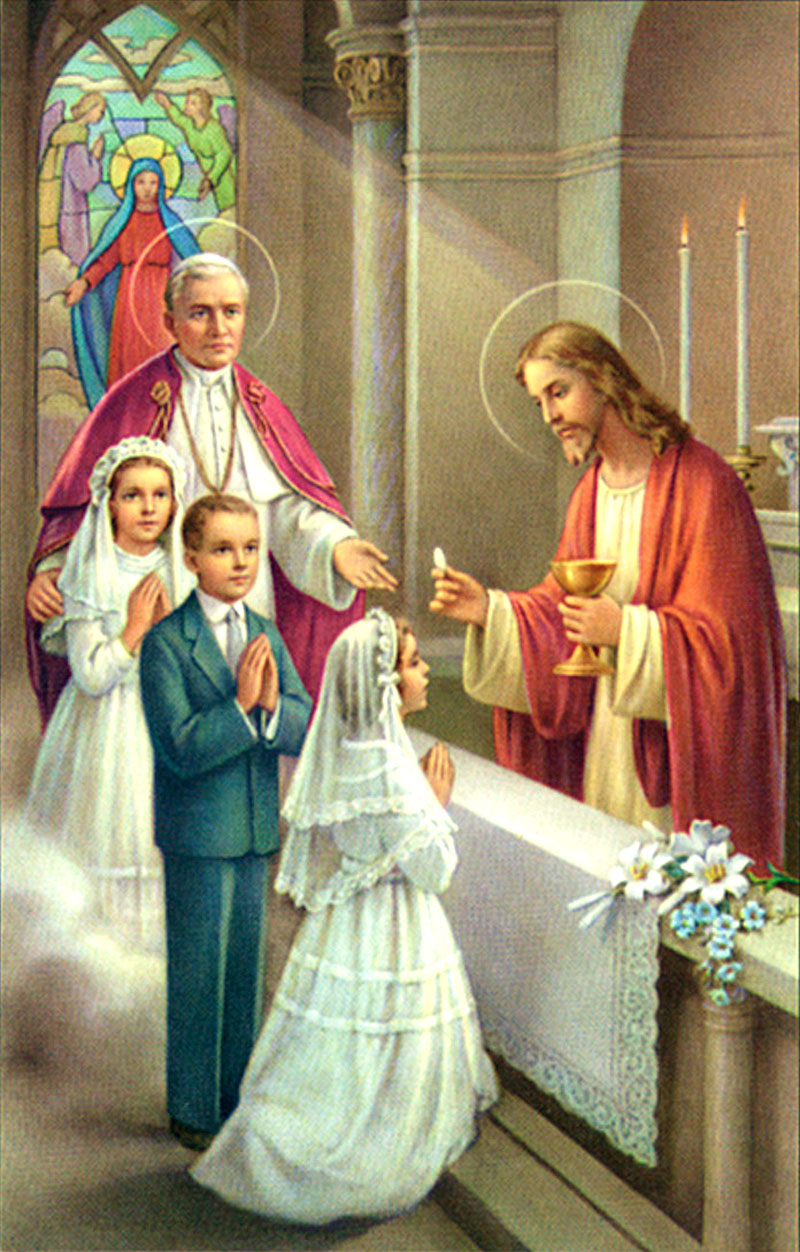
299. — What is Holy Communion?
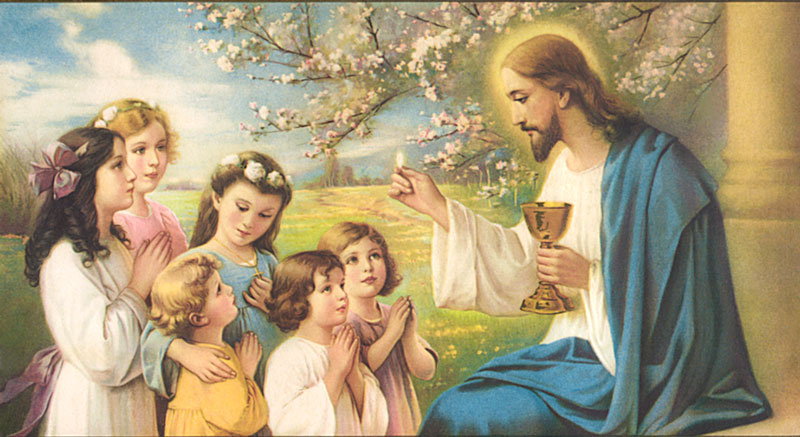
300. — What is necessary to make a good Communion?
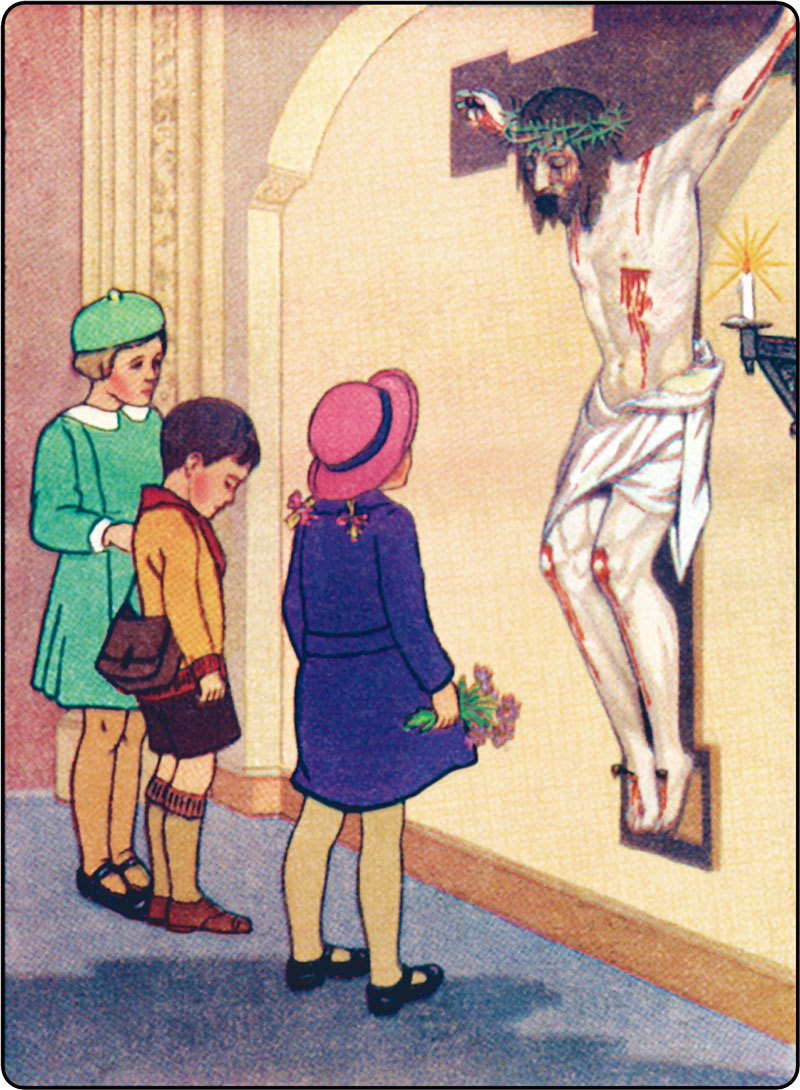
301. — Does the person who receives Communion in the state of mortal sin receive the Body and Blood of Jesus Christ?

302. — Does it suffice to be free from mortal sin to receive in abundance the graces of Holy Communion?

303. — What fast is necessary for Holy Communion?
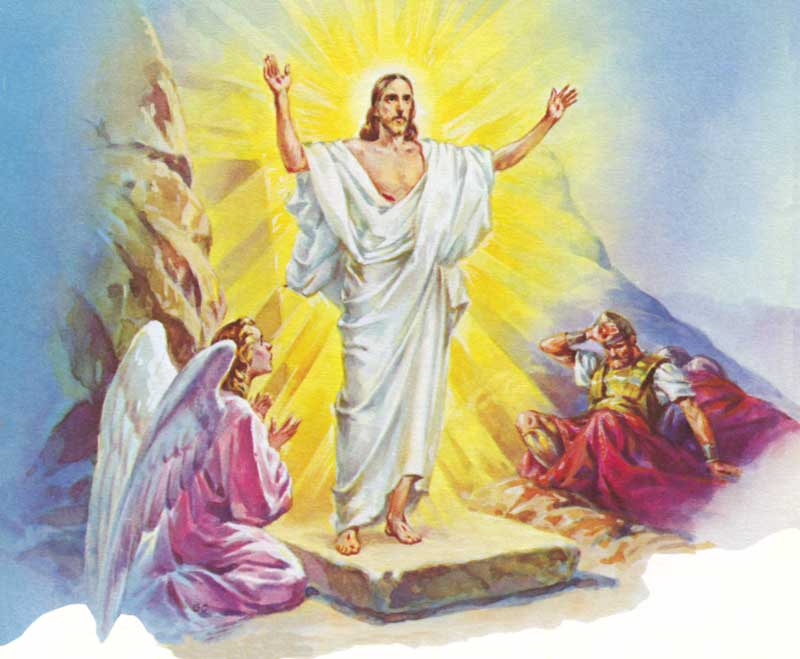
304. — When are we obliged to receive Communion?
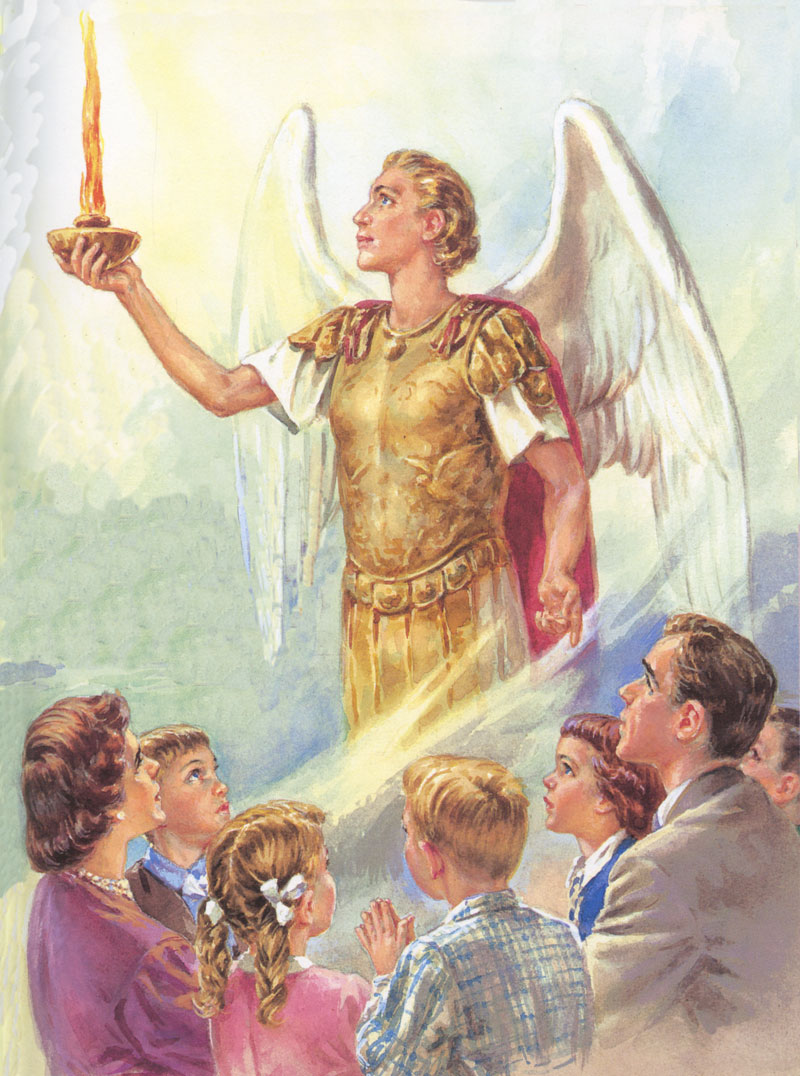
305. — Is it good to receive Holy Communion often?
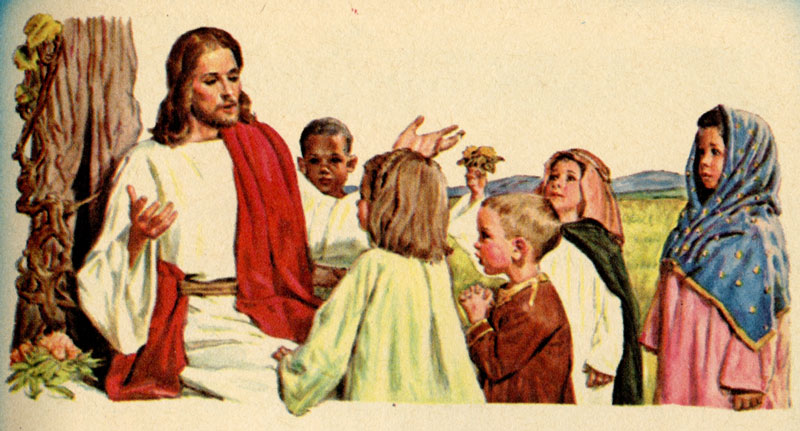
306. — What should we do after Communion?
Click on the dots to match the text to the audio.
Audio of the Lesson
Glossary
The word Communion, from the Christian Latin “communio”, means: union with the Body and Blood of Christ. To receive Communion is therefore to be united with Jesus Christ, since it is Jesus Christ whom we receive in the Eucharist through Communion.
To be in a state of grace in order to make a good communion does not mean that one must never have committed a mortal sin, but that all the mortal sins that one would have had the misfortune to commit must have been forgiven.
The prayers that are said after communion are called thanksgiving prayers.
Lesson 27: The Holy Sacrifice of the Mass

307. — What is the Mass?

308. — What is a sacrifice?

309. — Is the sacrifice of the Mass the same sacrifice as that of the cross?

310. — How is the sacrifice of the Mass the same sacrifice as that of the cross?

311. — What are the ends for which the sacrifice of the cross was offered?
The sacrifice of the cross was offered:
1. To glorify God.
2. To thank Him for all the graces bestowed upon the whole world.
3. To atone for the sins of men.
4. To obtain graces.

312. — What is the difference between the sacrifice of the cross and that of the Mass?

313. — How is the death of Jesus Christ on the cross represented in the Mass?

314. — How should we attend Mass?

315. — What is the best way to attend Mass?

316. — To whom do we offer the sacrifice of the Mass?
Click on the dots to match the text to the audio.
Audio of the Lesson
Glossary
An offering is a gift of something to someone. In the Mass, the priest offers Jesus, sacrificed for us, to His Father.
Interior recollection is the attention we give, the care we take to think only of what is happening at the altar during Holy Mass.
The intentions of the priest are the very ends of the Holy Sacrifice of the Mass. To unite oneself to the intentions of the priest is to adore God with the priest, to thank God for the graces He has granted us, and to ask God’s forgiveness for our sins, which is also what the priest does.
Lesson 28: The Sacrament of Extreme Unction
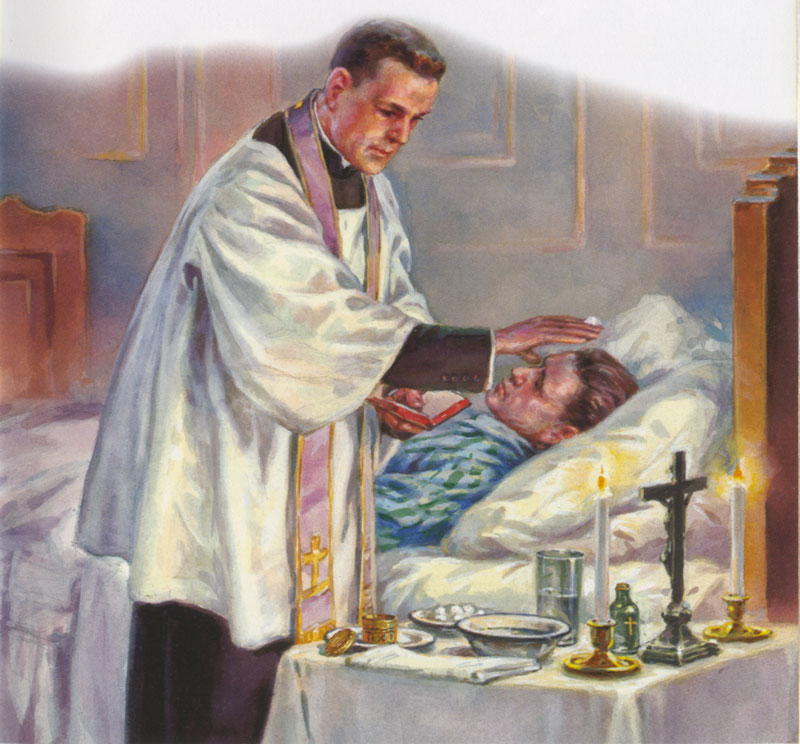
317. — What is Extreme Unction?

318. — When should we receive Extreme Unction?
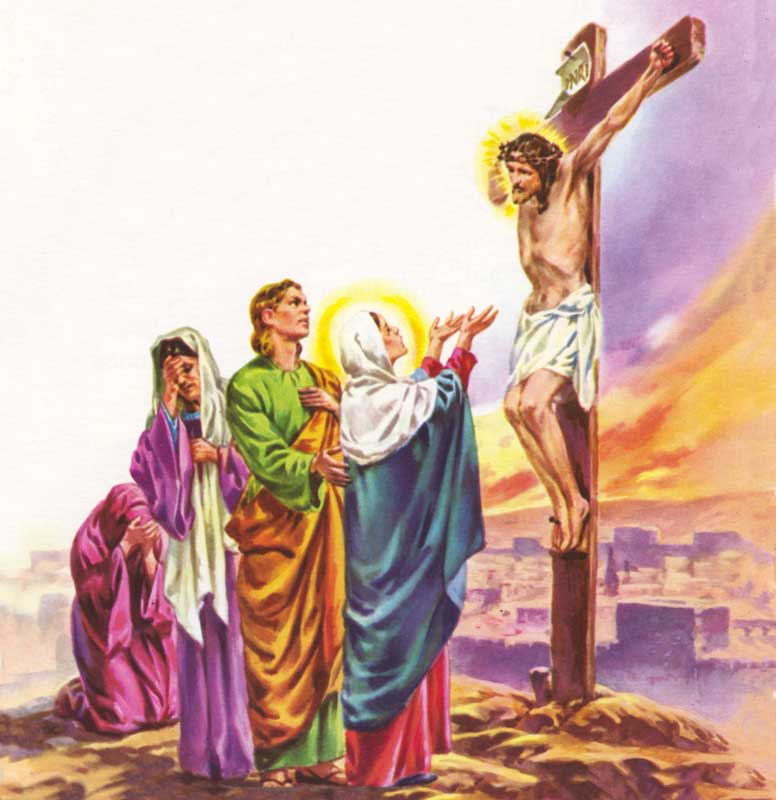
319. —Should we wait until we are in extreme danger to receive Extreme Unction?
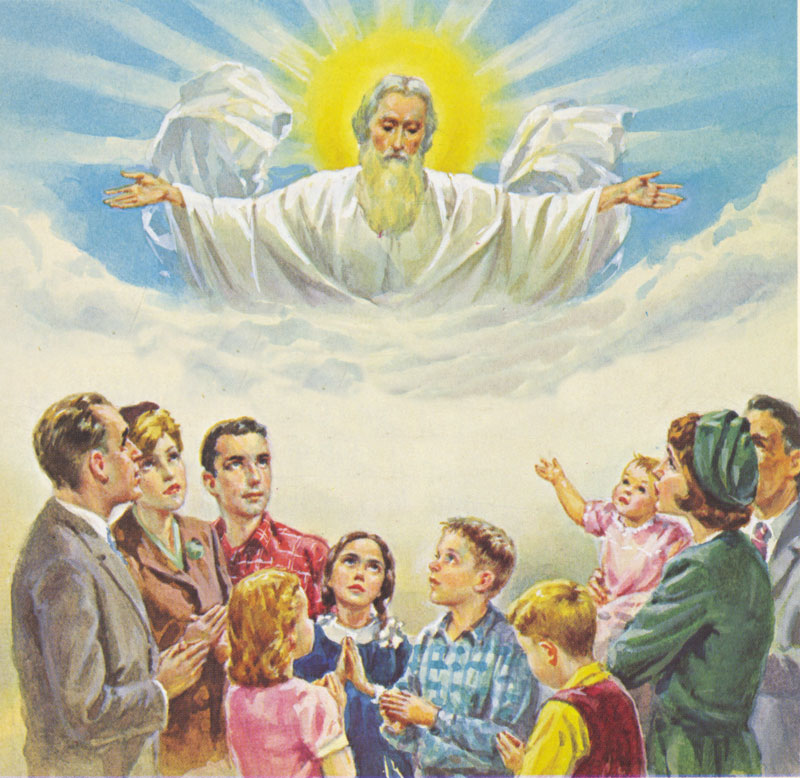
320. — What are the effects of the sacrament of Extreme Unction?
The effects of the sacrament of Extreme Unction are:
1. To comfort us in our sufferings and to strengthen us against temptations.
2. To remit venial sins and to purify our soul of the remains of sin.
3. To restore us to health if God sees fit.

321. — What do we mean by the remains of sin?
By the remains of sin, we mean:
1. The punishment due to sin.
2. The inclination to evil and the weakness of the will, which are the result of sin, and which remain even after our sins have been forgiven.
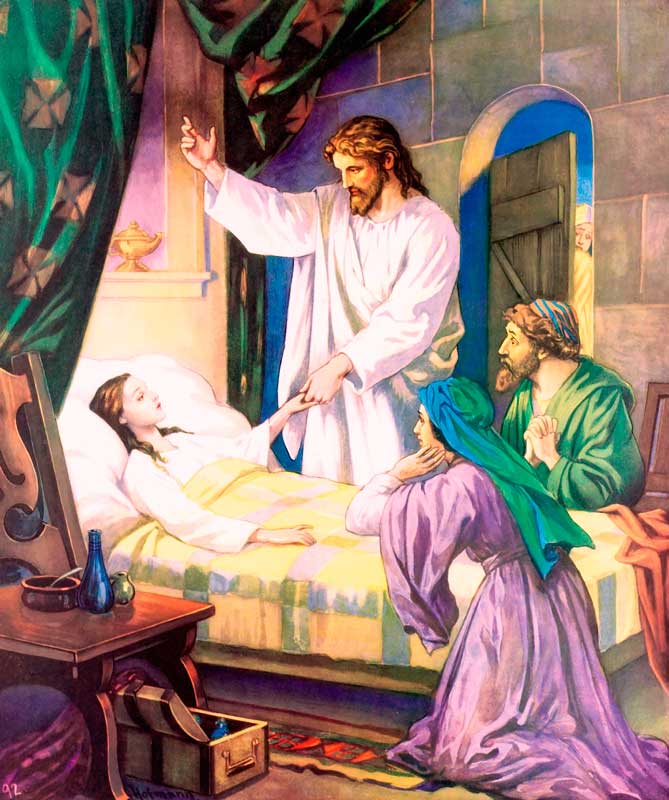
322. — How should we receive the sacrament of Extreme Unction?
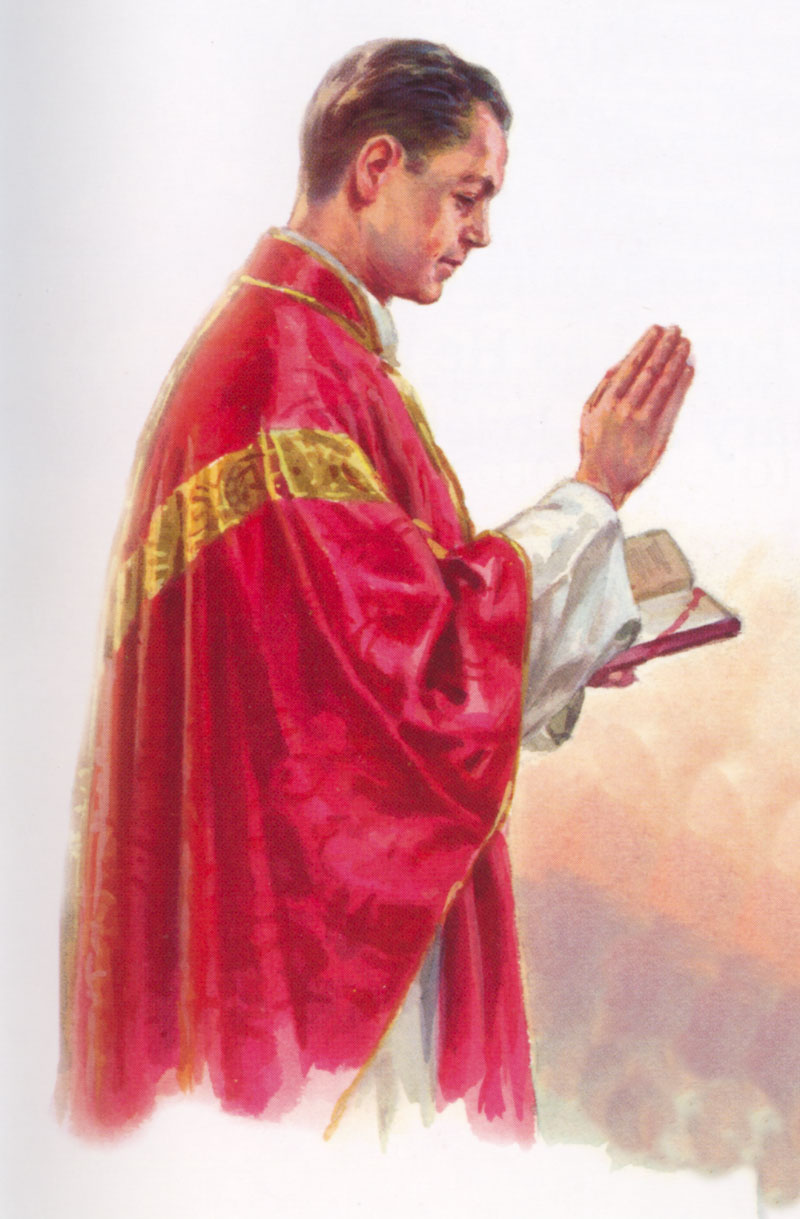
323. — Who are the ministers of Extreme Unction?
Click on the dots to match the text to the audio.
Audio of the Lesson
Glossary
Extreme means: which is the very last. By using the word Extreme-Onction, we do not mean that the anointing of this sacrament is to be done to Christians only when they are at the moment of death, but we simply mean that Jesus Christ has established this anointing to be the last of all those received by the Christian.
Lesson 29: The Sacrament of Holy Orders
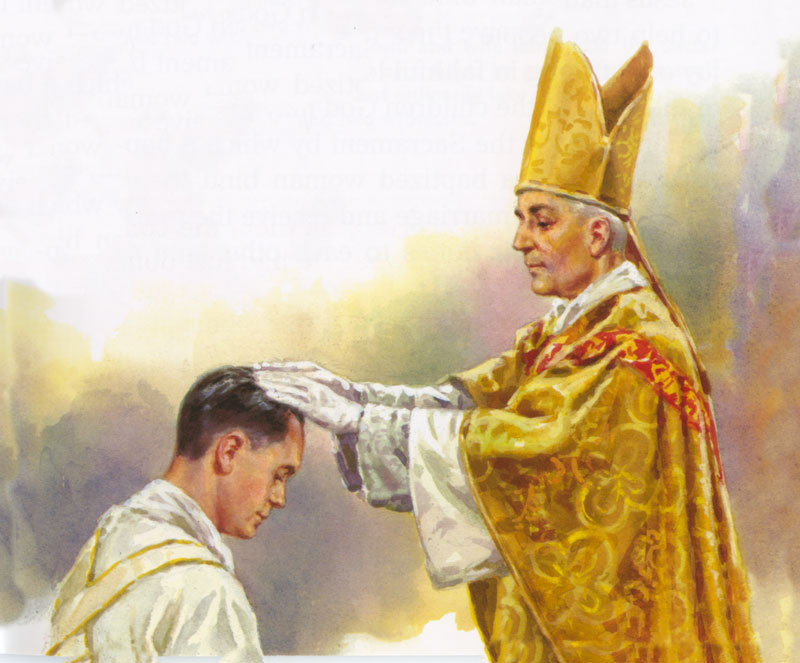
324. — What is Holy Orders?

325. — When did Jesus Christ institute the sacrament of Holy Orders?

326. — What is necessary to receive the sacrament of Holy Orders worthily?
To receive the sacrament of Holy Orders worthily it is necessary to:
1. Be called by God.
2. Have the required learning.
3. Intend to devote one’s life to the works of the priesthood.
4. Be in the state of grace.

327. — How should Christians look upon the priests of the Church?

328. — Should parents be happy or sad when God calls one or several of their children to the priesthood?
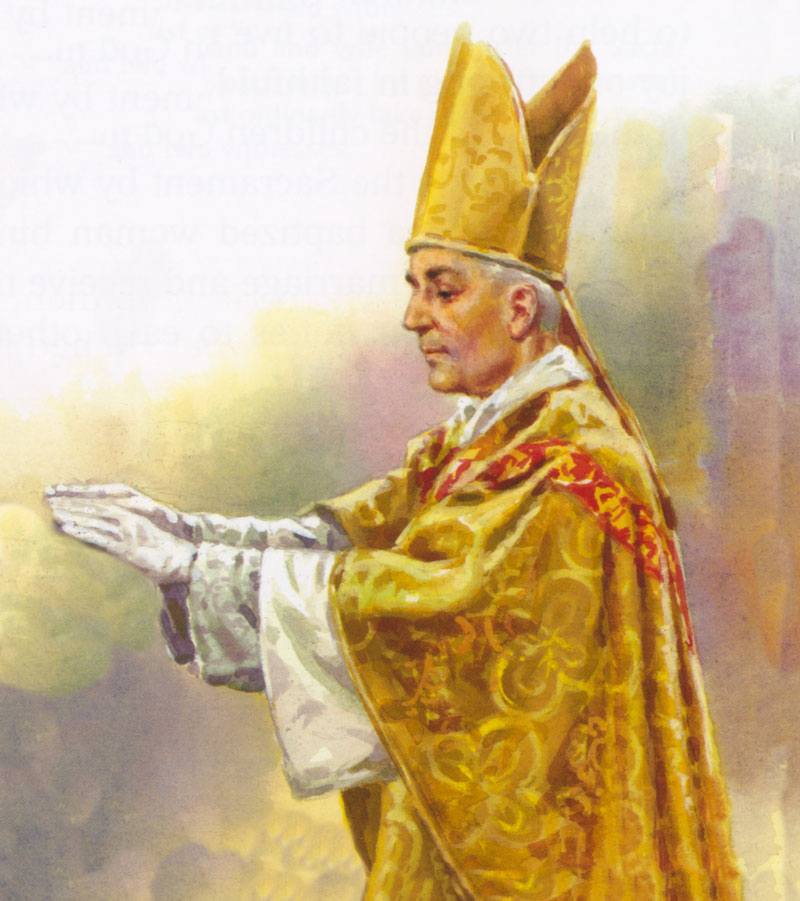
329. — Who is the minister of the sacrament of Holy Orders?
Click on the dots to match the text to the audio.
Audio of the Lesson
Glossary
Order, from the Latin “ordo” means “degree, hierarchy”. Besides bishops and priests, the other sacred ministers are: deacons, subdeacons, (major orders), porters, readers, exorcists, acolytes (minor orders).
Priests are God’s envoys, that is, His representatives on earth, those whom He charges with leading souls to Heaven.
A dispenser is one who gives, who distributes. The priest is the dispenser of doctrine, i.e. he is the one who is in charge of teaching the faithful the truths of the faith.
The priest is the dispenser of God’s graces, because it is he who administers the sacraments, which are the principal means God uses to give us grace.
Lesson 30: The Sacrament of Matrimony
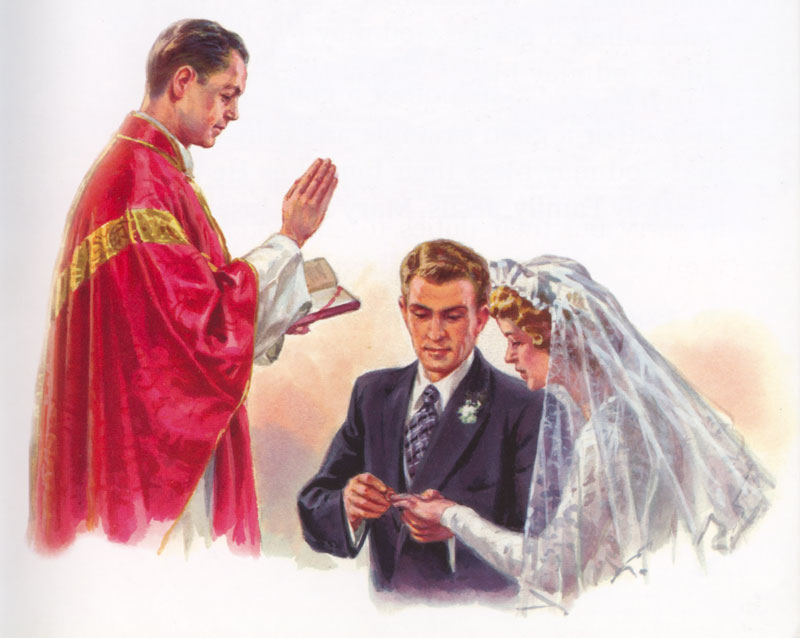
330. — What is Matrimony?
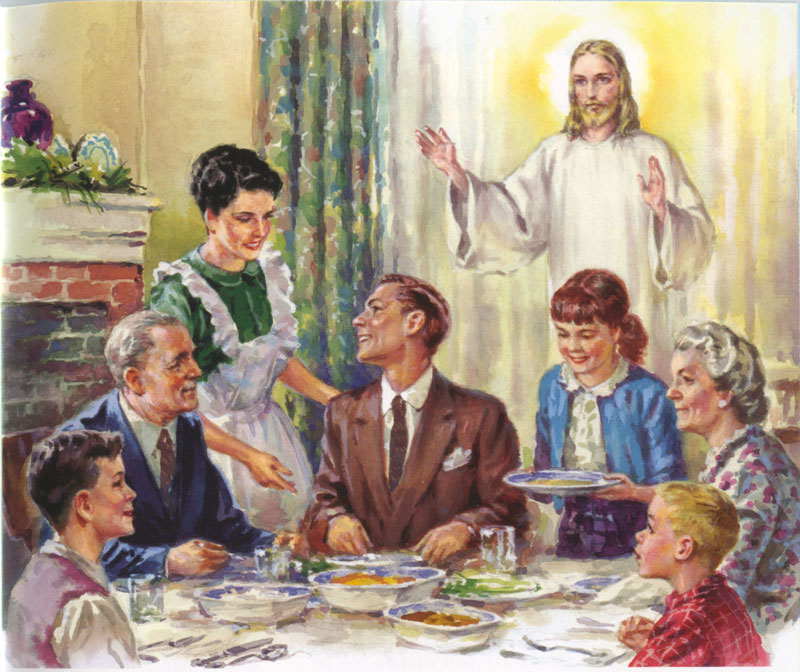
331. — For what special purpose did God institute marriage?
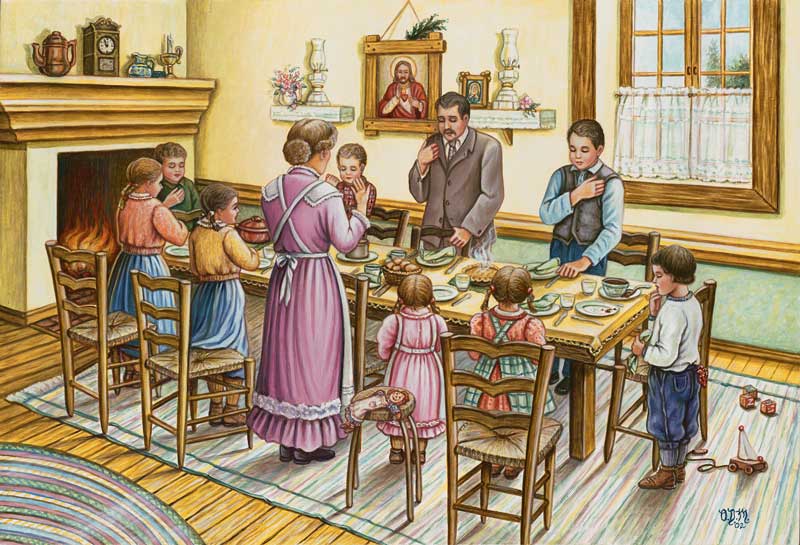
332. — What does it mean for parents to care for the souls of their children?

333. — Can Christians be united in lawful marriage in any other way than by the sacrament of Matrimony?
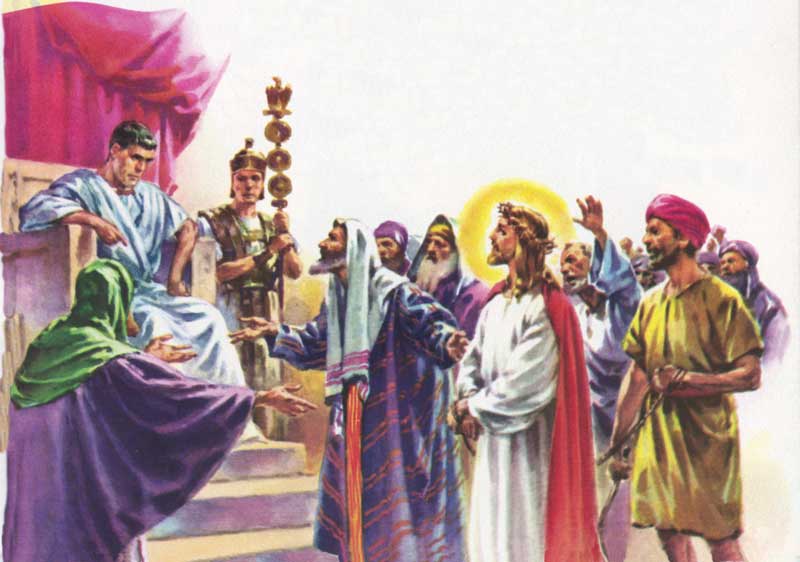
334. — Can the State grant an absolute divorce, with permission to remarry?
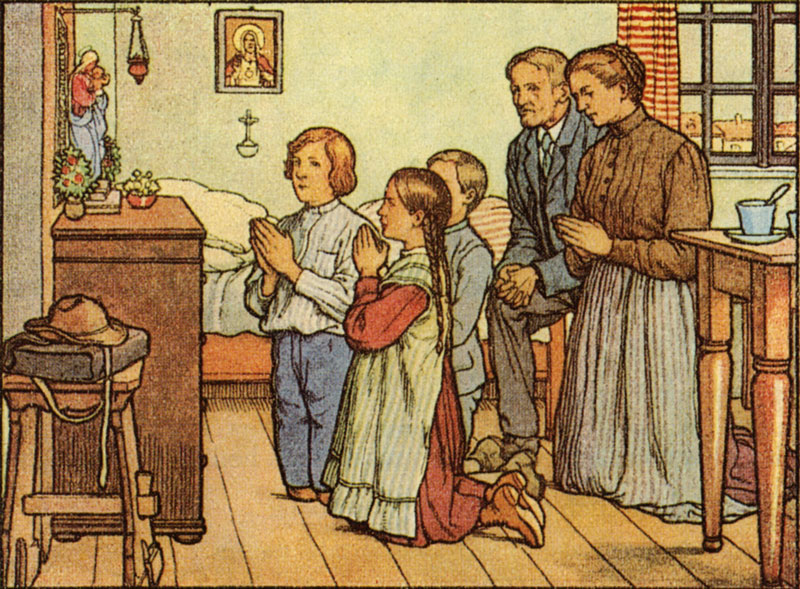
335. — What are the effects of the sacrament of Matrimony?
The effects of the sacrament of Matrimony are:
1. To sanctify the mutual love of husband and wife.
2. To give them the grace to be faithful to one another and to bear each other’s weaknesses.
3. To enable them to raise their children in the fear and love of God.

336. — What is necessary to receive the sacrament of Matrimony worthily?
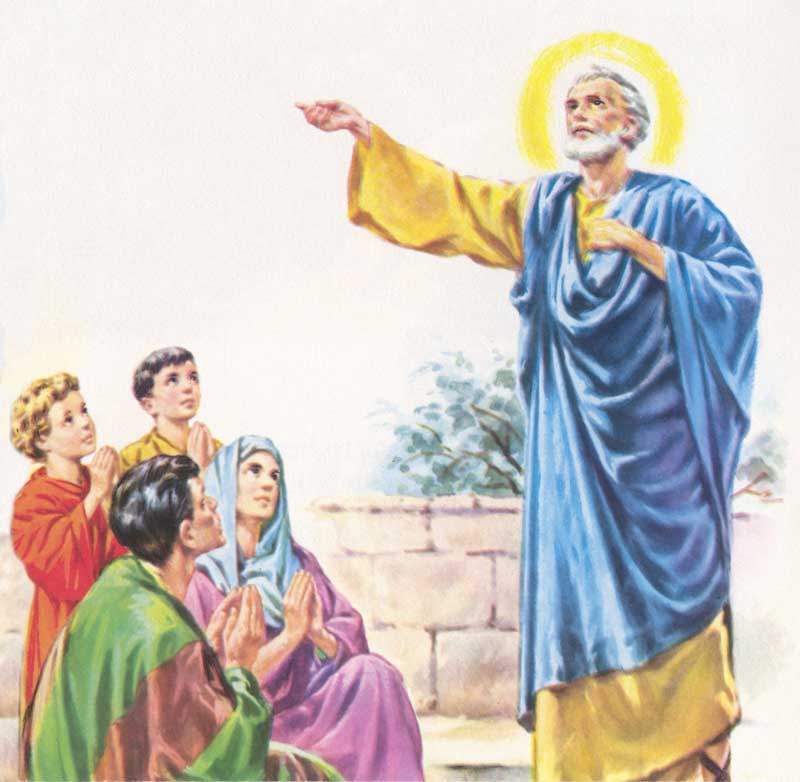
337. — Why does the Church forbid the marriage of Catholics with persons who have a different religion or no religion at all?

338. — Why do many marriages prove unhappy?
Many marriages prove unhappy because:
1. The spouses have entered it without deliberation or for motives unworthy of Christians.
2. They neglect the duties of their state of life.
3. They do not ask God for help in the difficulties of marriage.

339. — How should Christians prepare for a holy and happy marriage?
Christians should prepare for a holy and happy marriage by:
1. Asking God to grant them a pure intention and to direct their choice.
2. Seeking the advice of their parents and of their pastor.
3. Maintaining a chaste courtship.
4. Going to confession and Communion often.

340. — In whose presence must marriage be contracted?
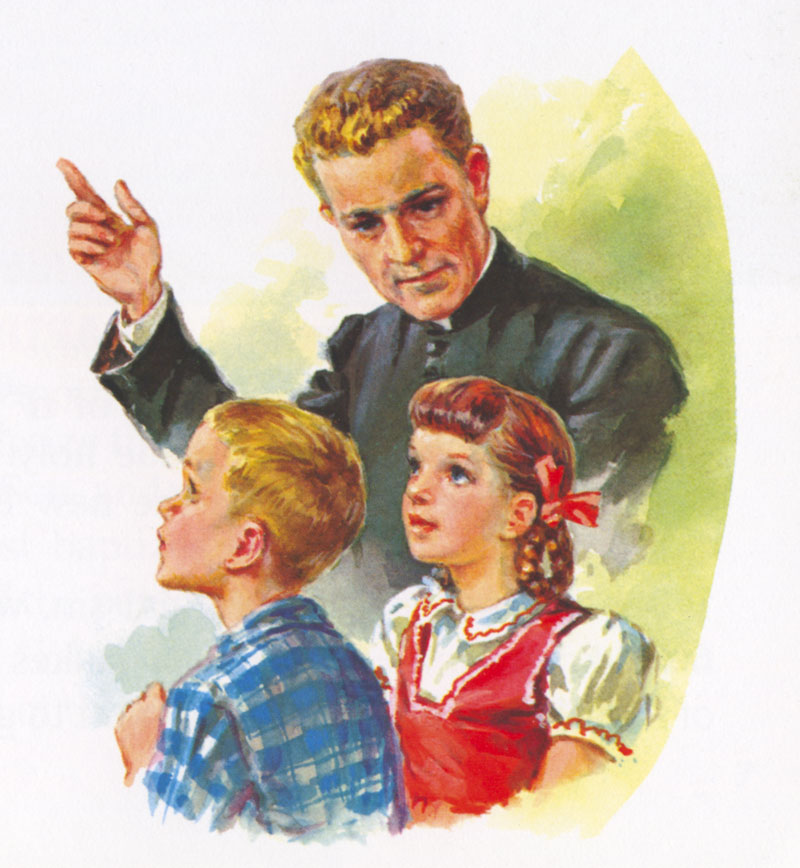
341. — What is meant by the impediment to marriage between relatives to the third degree inclusively?
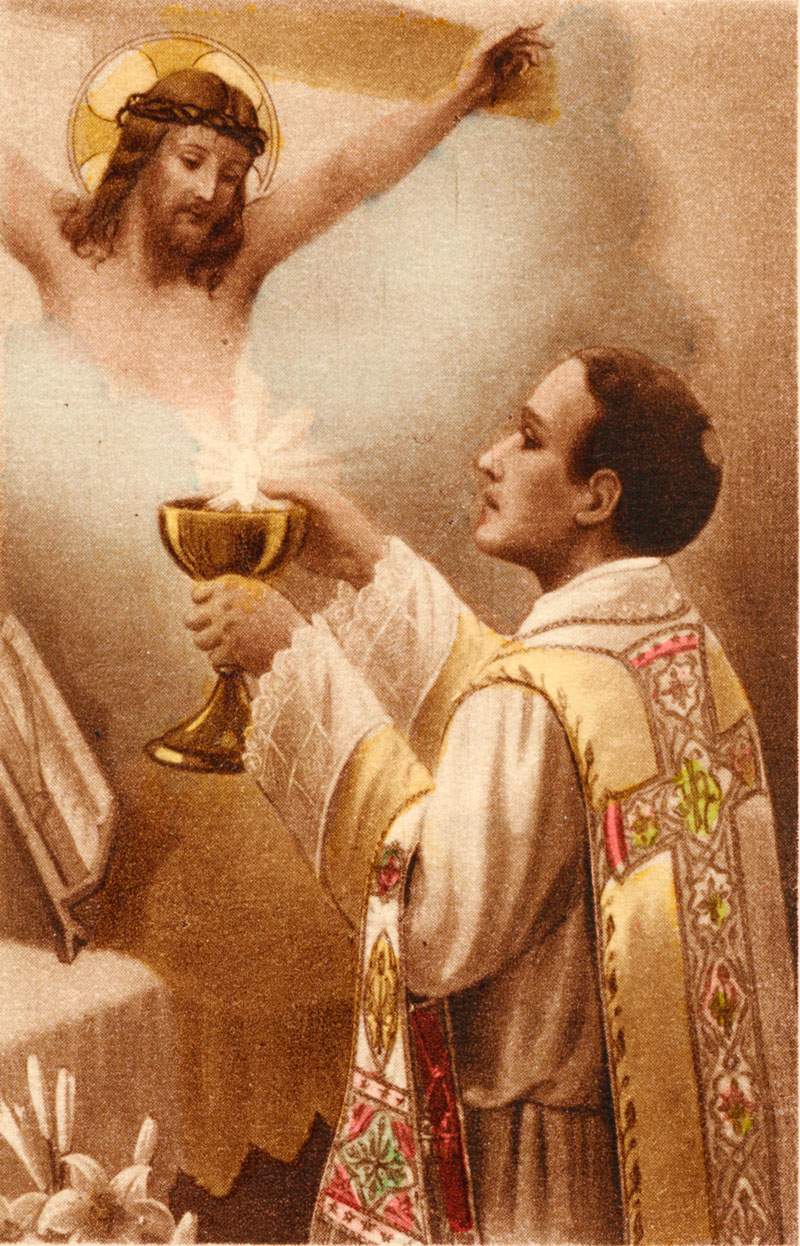
342. — What is the Nuptial Mass?

343. — What practice draws down abundant blessings upon married life?
Click on the dots to match the text to the audio.
Audio of the Lesson
Glossary
The sacrament of marriage is contracted by both spouses, but to be legitimate, this contract must be made before a priest and witnesses.
The mutual love of the spouses is the love that the spouses owe each other; the husband must love his wife, and the wife must love her husband.
Religious indifference is the disposition of those who do not care about religion, or those who think that all religions are good.
Lesson 31: Sacramentals

344. — What are sacramentals?

345. — What is the difference between the sacraments and the sacramentals?
The difference between the sacraments and the sacramentals is twofold:
1. The sacraments were instituted by Jesus Christ, whereas sacramentals were instituted by the Church.
2. The sacraments give grace of themselves provided we set no obstacle in the way; whereas sacramentals only prompt in us pious dispositions, by which we may obtain grace.
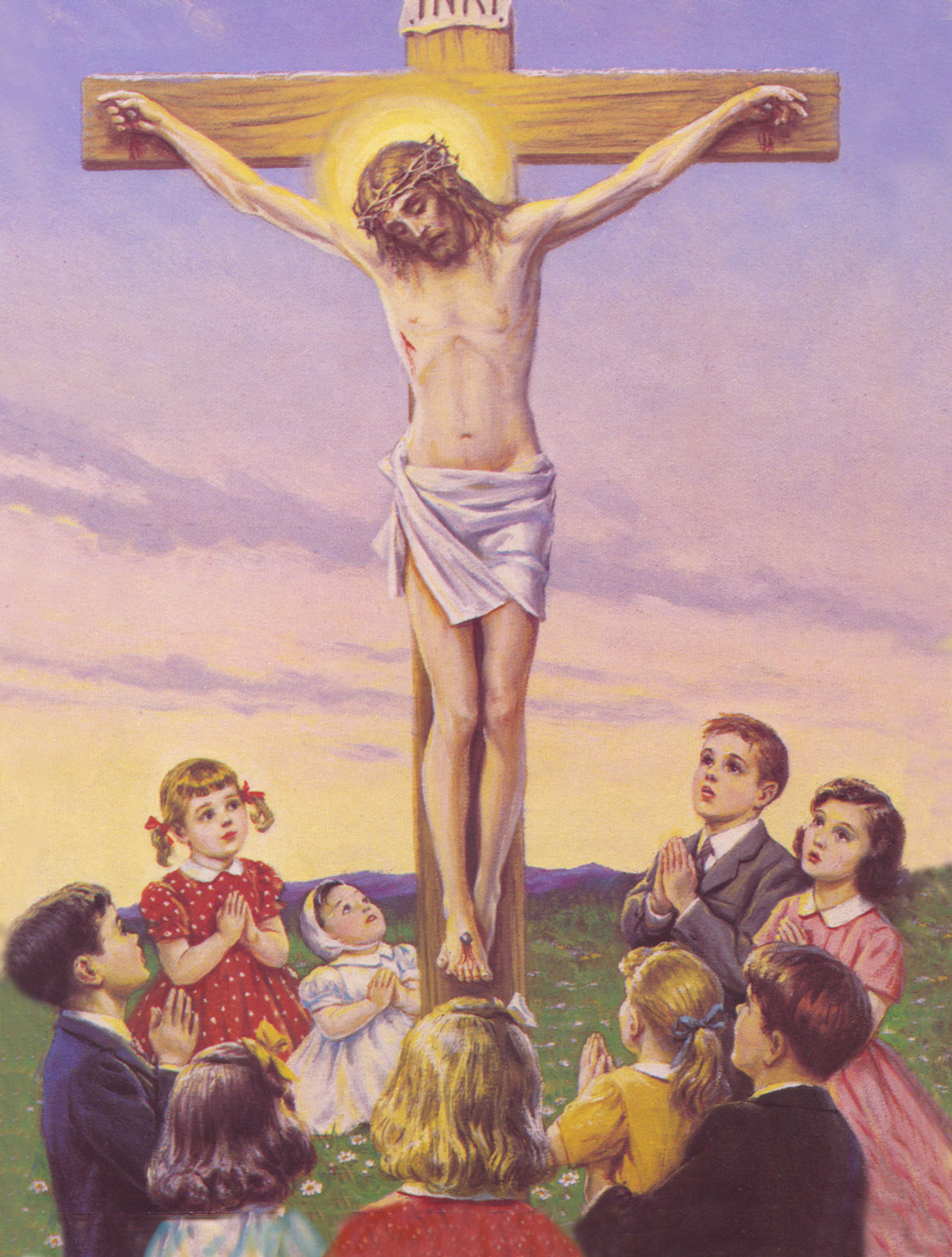
346. — Which is the chief sacramental, and the one most in use?

347. — How do we make the sign of the cross?

348. — What do we mean to express by the sign of the cross?

349. — How is the sign of the cross a profession of faith in the chief mysteries of our religion?
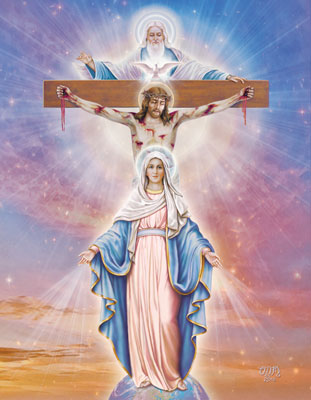
350. — How does the sign of the cross express the mystery of the Trinity / the mysteries of the Incarnation and Redemption?
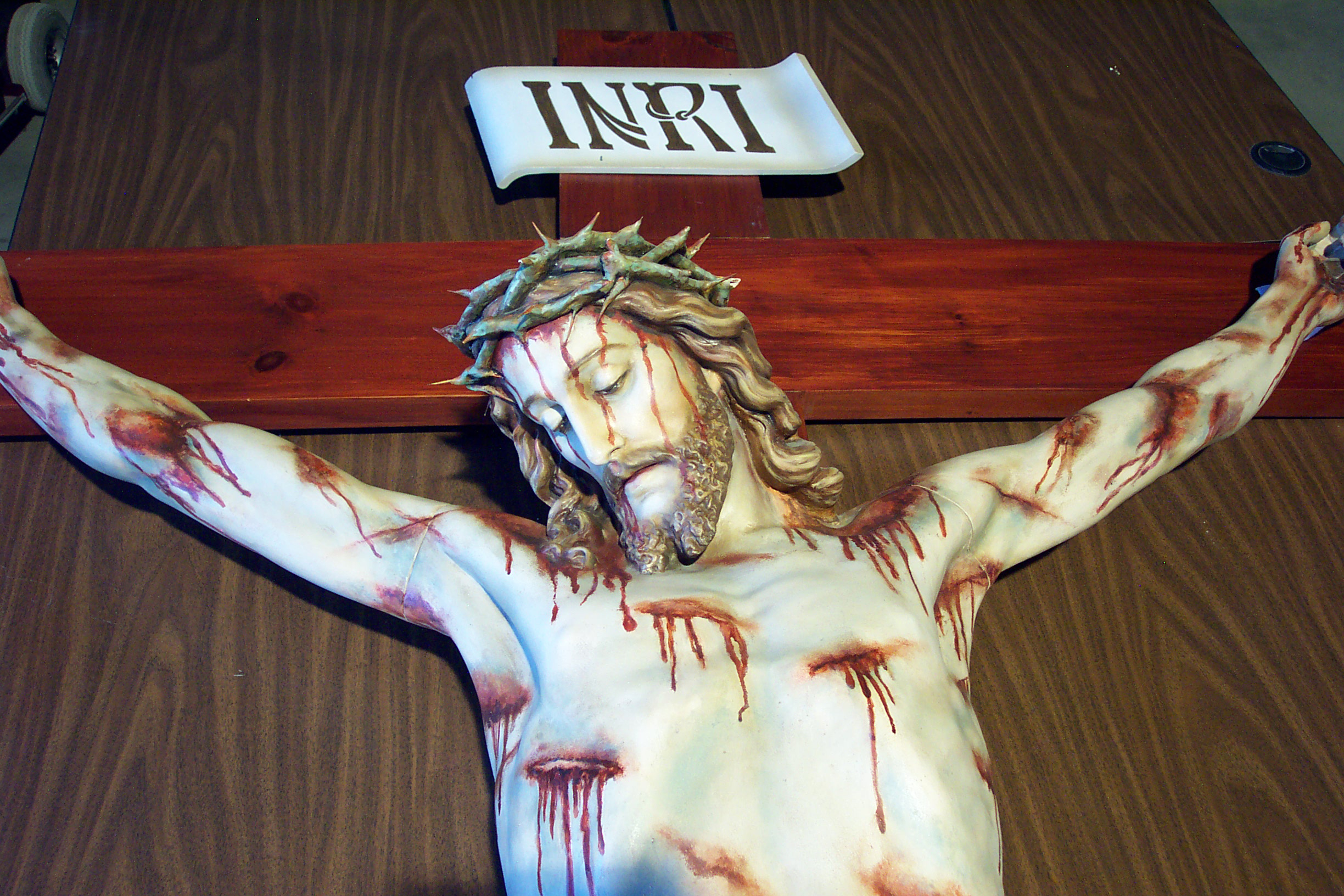
351. — When should we make the sign of the cross?
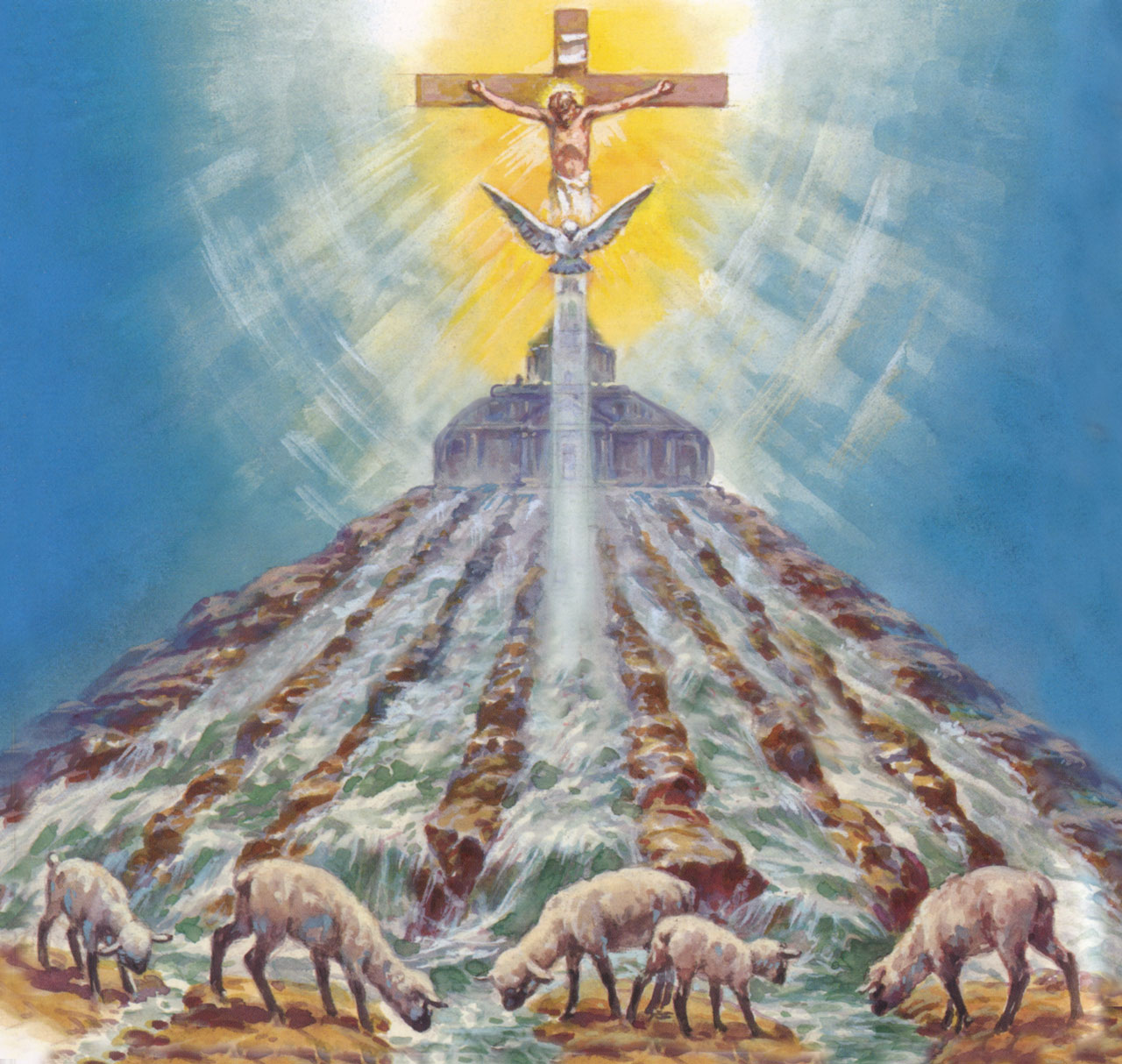
352. — After the sign of the cross, which other sacramental is in most frequent use?

353. — What is Holy Water?

354. — Are there any other sacramentals besides the sign of the cross and Holy Water?

355. — What is the medal par excellence?
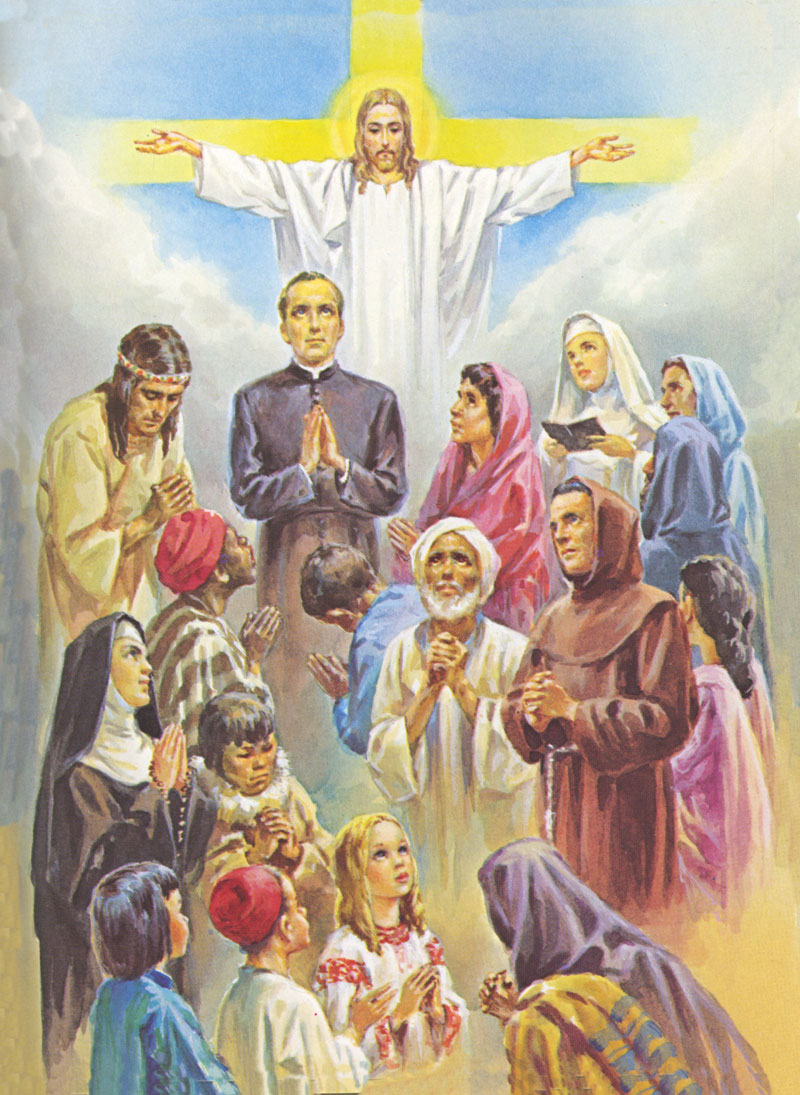
356. — How should we use sacramentals?
Click on the dots to match the text to the audio.
Audio of the Lesson
Glossary
A sign is a mark that makes something known by distinguishing it from another. The sign of the Cross is the distinctive mark that makes a Christian recognized.
Lesson 32: Prayer

357. — What is prayer?
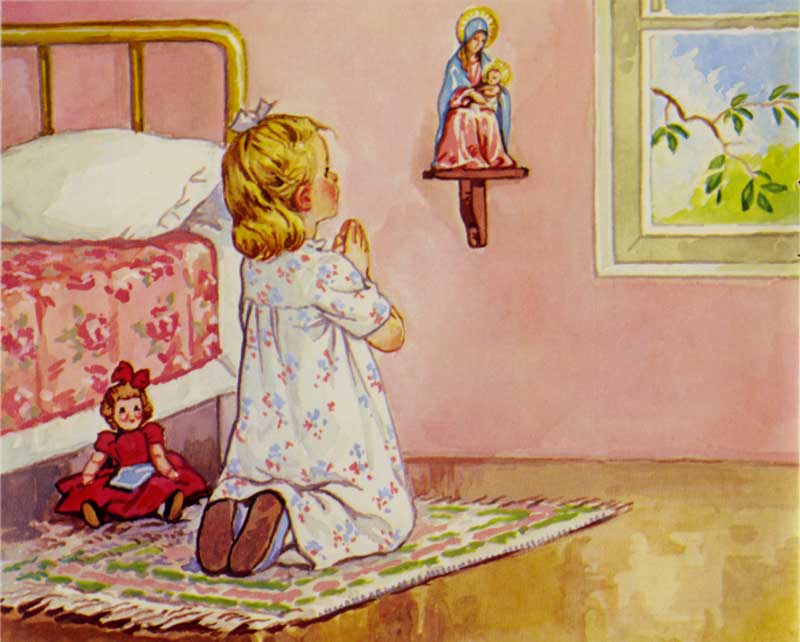
358. — Is prayer necessary for salvation?
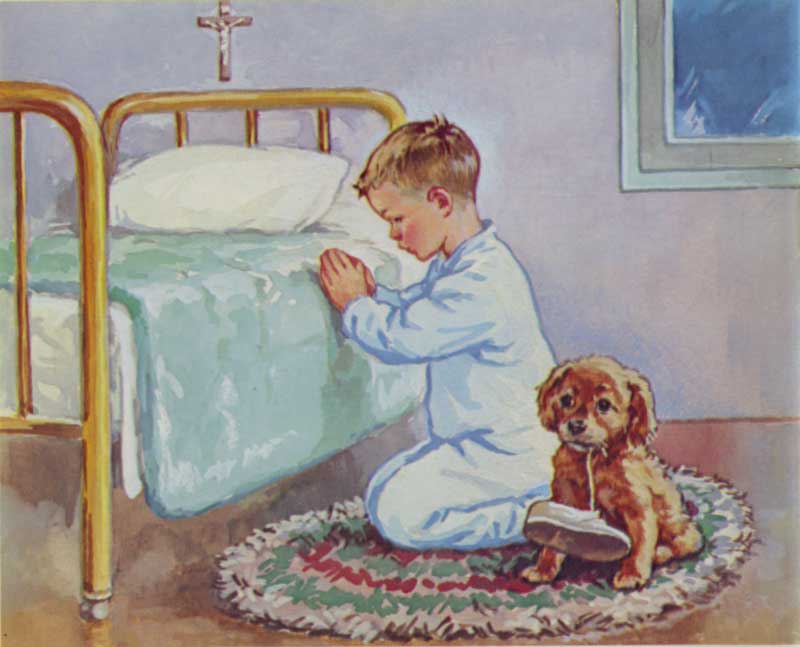
359. — When should we pray?
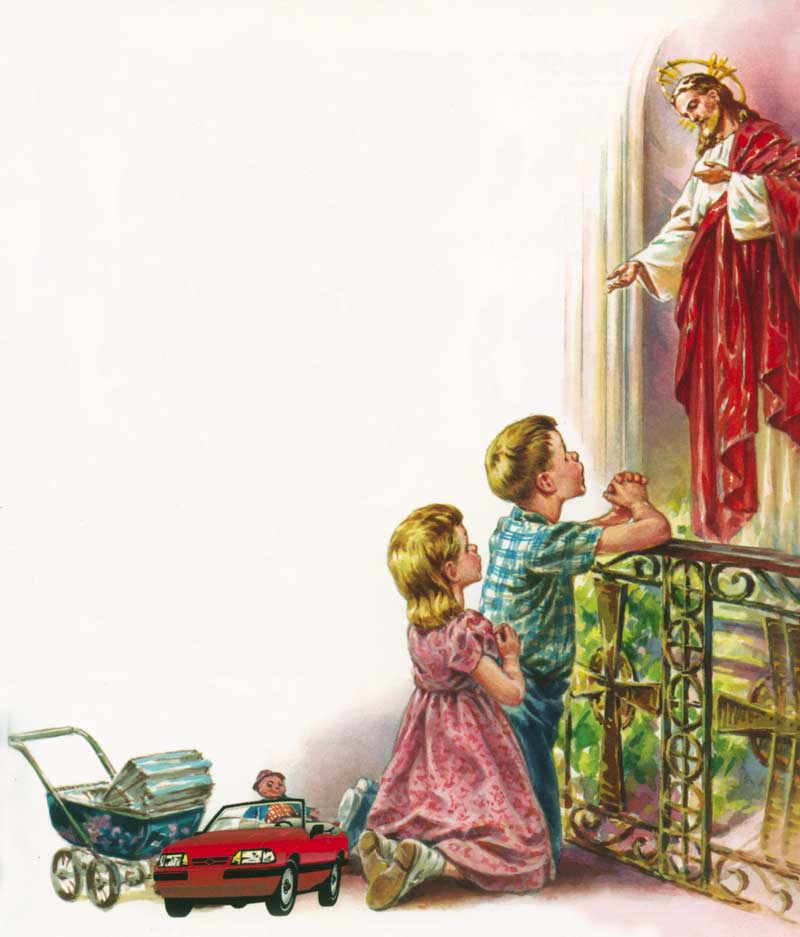
360. — How must we pray?
We must pray:
1. With attention and recollection.
2. With humility, and with a sense of our own helplessness and dependence upon God.
3. With a great desire and great confidence that we will obtain God’s graces.
4. With perseverance.
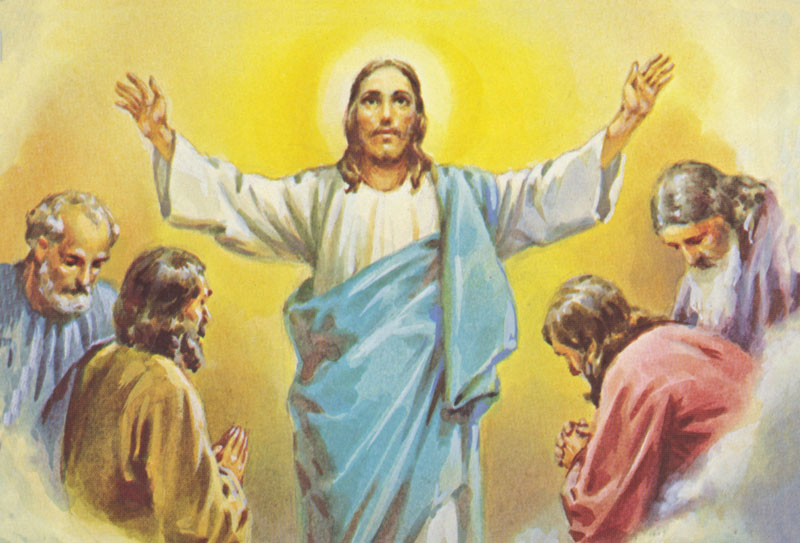
361. — In whose name should we pray?

362. — For whom should we pray?
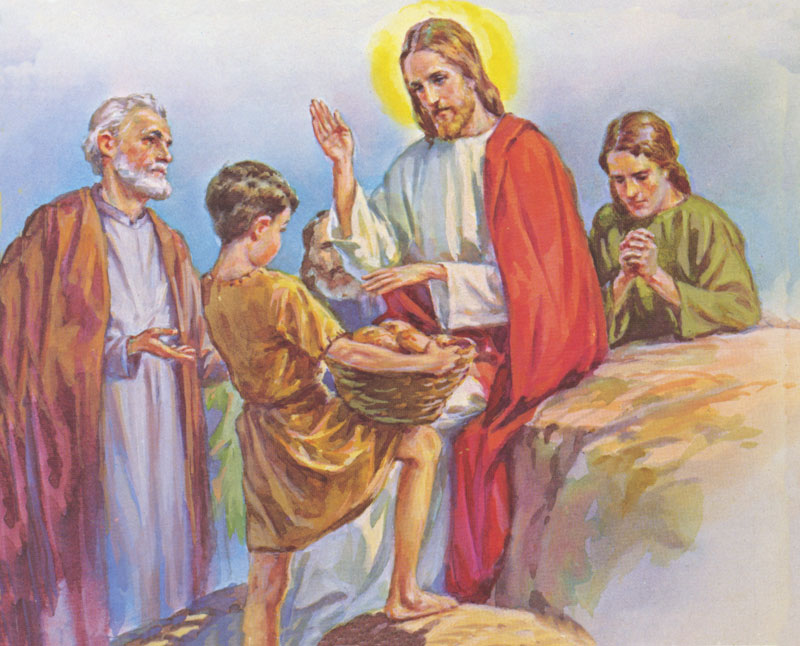
363. — Does God always answer our prayers?

364. — What above all should we ask of God?

365. — May we ask God for health and other temporal blessings?

366. — What are the most recommended prayers?
Click on the dots to match the text to the audio.
Audio of the Lesson
Glossary
To pray with attention is to think about what we do and what we say while praying.
To pray with humility is to have a sense of our own misery and of the majesty of the One we are praying to; it is to recognize that we can do nothing without God’s help.
To pray with perseverance is to renew our prayers until they are answered, if God judges that the request we make to Him is good.
To pray with confidence is to address God with the assurance that He listens with goodness to our prayers and that He is willing to grant us everything we need.
To grant means: to hear favorably, and to give what is asked for.
Lesson 33: The Lord’s Prayer
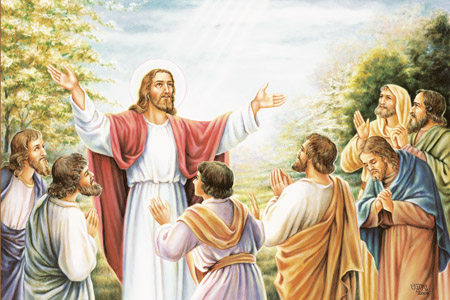
367. — Who taught us the Our Father, or the Lord’s Prayer?

368. — Recite the Lord’s Prayer.

369. — Why do we say “Our Father”, and not “My Father”?
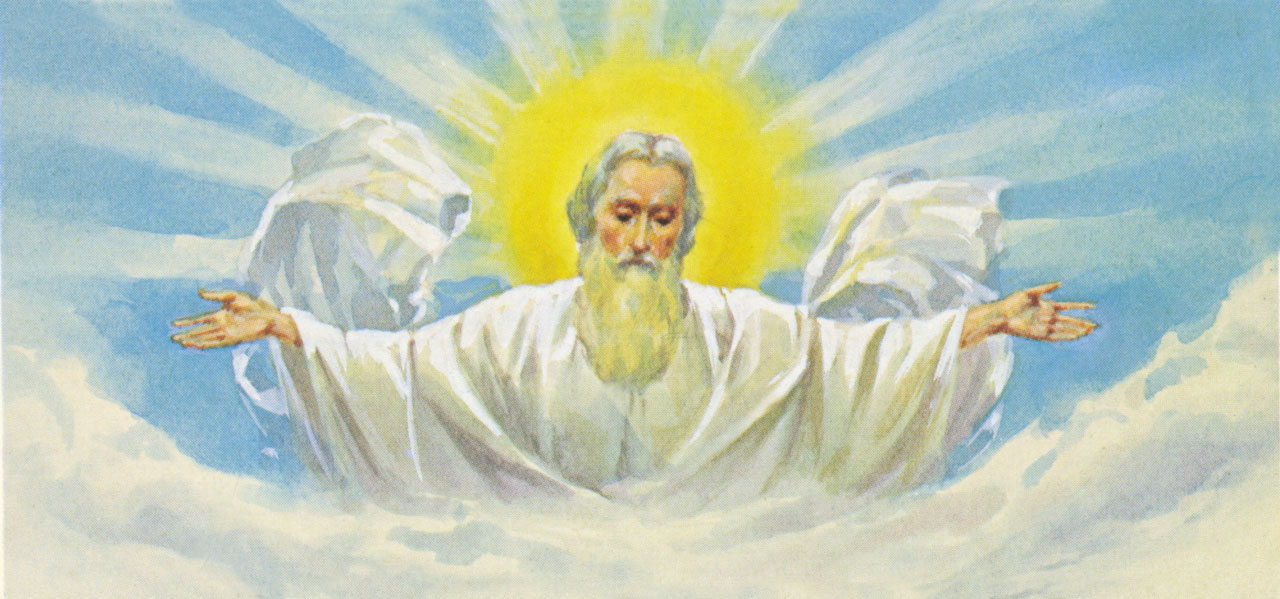
370. — Why did Our Lord add “who art in Heaven”?
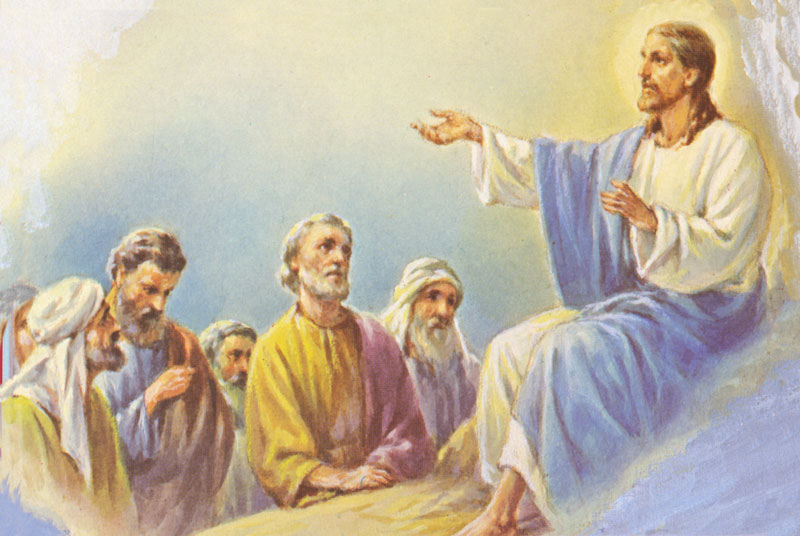
371. — What do we ask of God in the Lord’s Prayer?

372. — What do we ask for the glory of God?
We ask for the glory of God:
1. That His holy name may be known and blessed.
2. That He may reign in all hearts by His grace.
3. That men may obey Him on earth as the Angels and the Saints obey Him in Heaven.

373. — What do we ask for ourselves in the Lord’s Prayer?
In the Lord’s Prayer we ask four things for ourselves:
1. Our daily bread, that is, all that we need for the soul and the body.
2. Forgiveness of our trespasses, recalling that we must forgive our neighbor if we want God to forgive us.
3. The grace to overcome temptations.
4. The favor of being preserved from all evil, especially sin and eternal damnation.
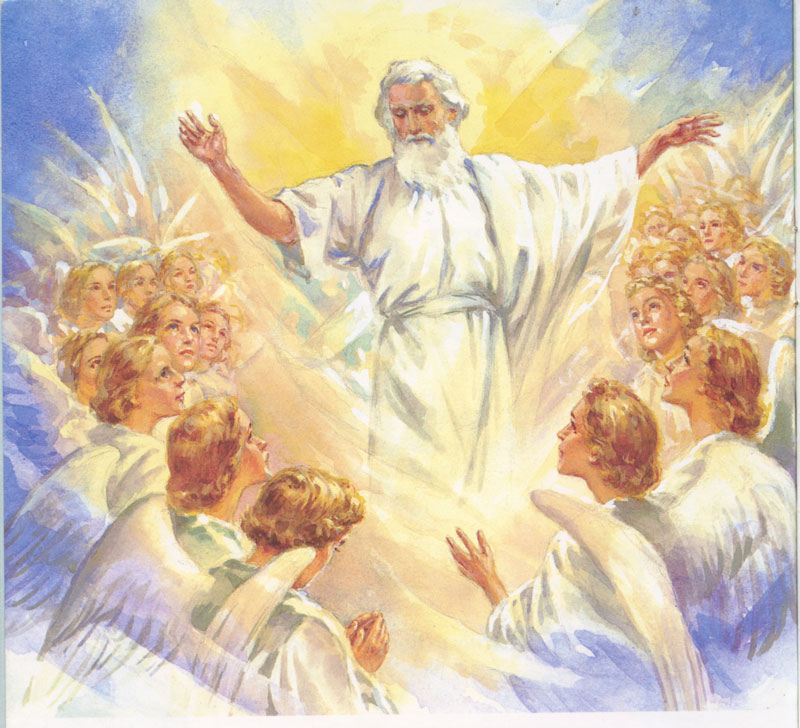
374. — What does the word “Amen” express?
Click on the dots to match the text to the audio.
Audio of the Lesson
Glossary
“The Lord’s Prayer” is also called the “Pater” because this is the word with which it begins in Latin.
By the glory of God, we mean sometimes the Majesty of God, that is to say His infinite greatness, His superiority over all creatures, and also the praises and honor due to Him.
Lesson 34: The Angelical Salutation
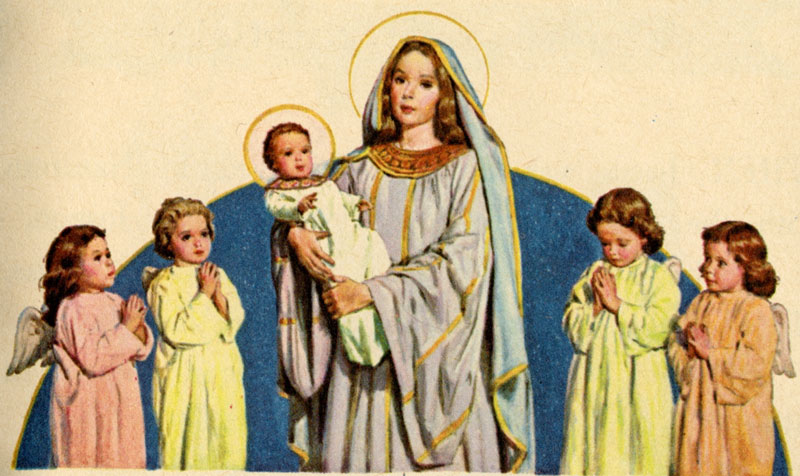
375. — Why do we pray so often to the Blessed Virgin?

376. — By what prayer does the Church most ordinarily invoke the Blessed Virgin?

377. — Recite the Angelical Salutation.
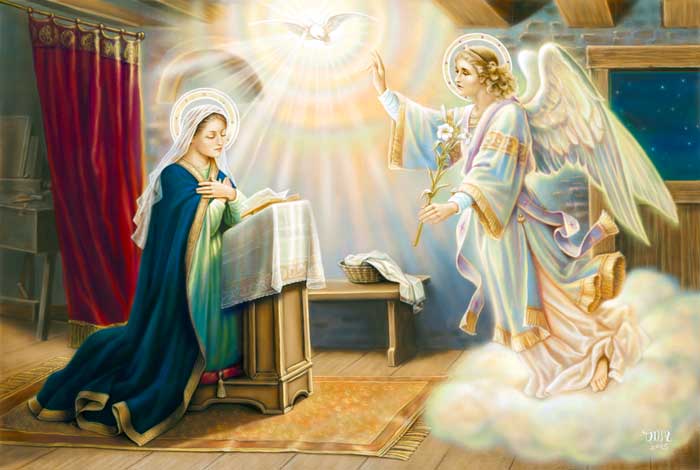
378. — Why do we call this prayer the “Angelical Salutation”?
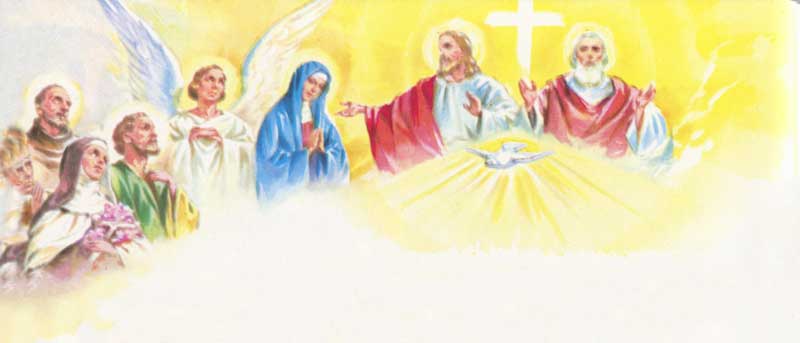
379. — What is the meaning of these words, “full of grace”, which the Angel spoke to Mary?
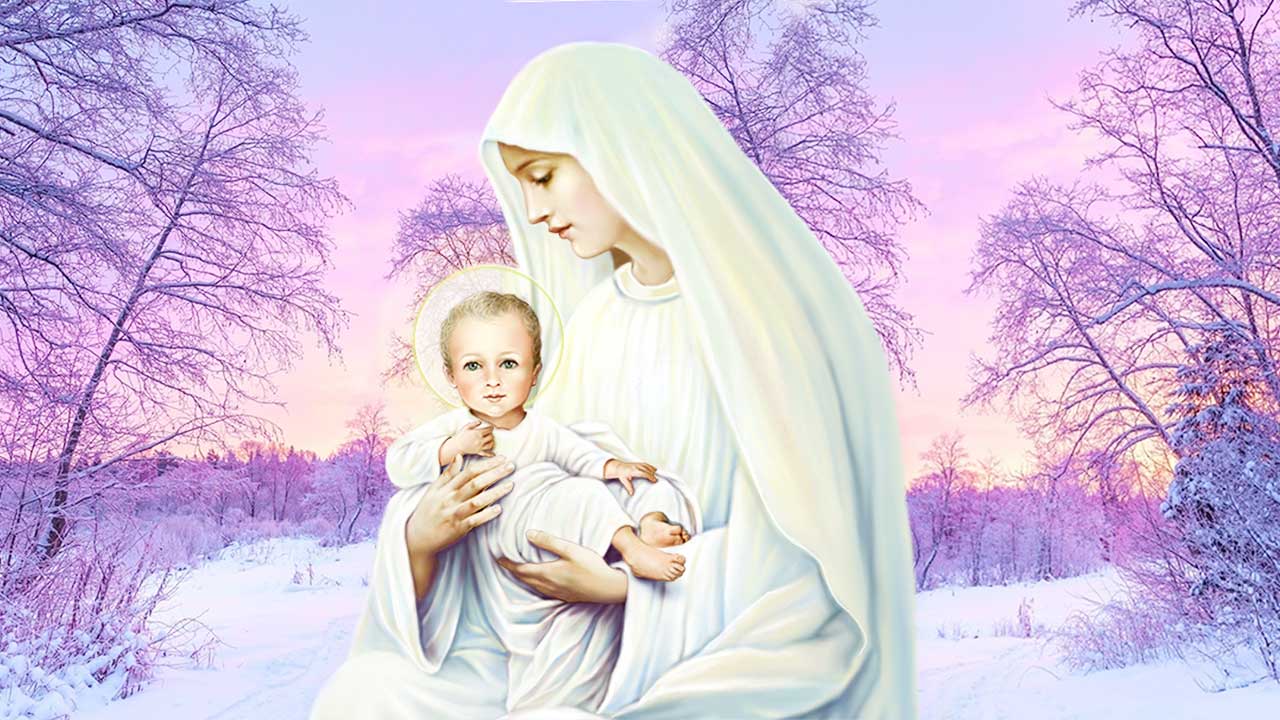
380. — What is the meaning of these words of the Angel to Mary: “The Lord is with Thee”?
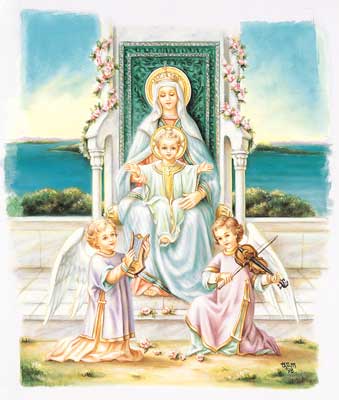
381. — What is the meaning of these words of Saint Elizabeth to the Blessed Virgin: “Blessed art Thou among women”?

382. — What is the meaning of these other words of Saint Elizabeth to Mary: “And blessed is Thy Son Jesus”?
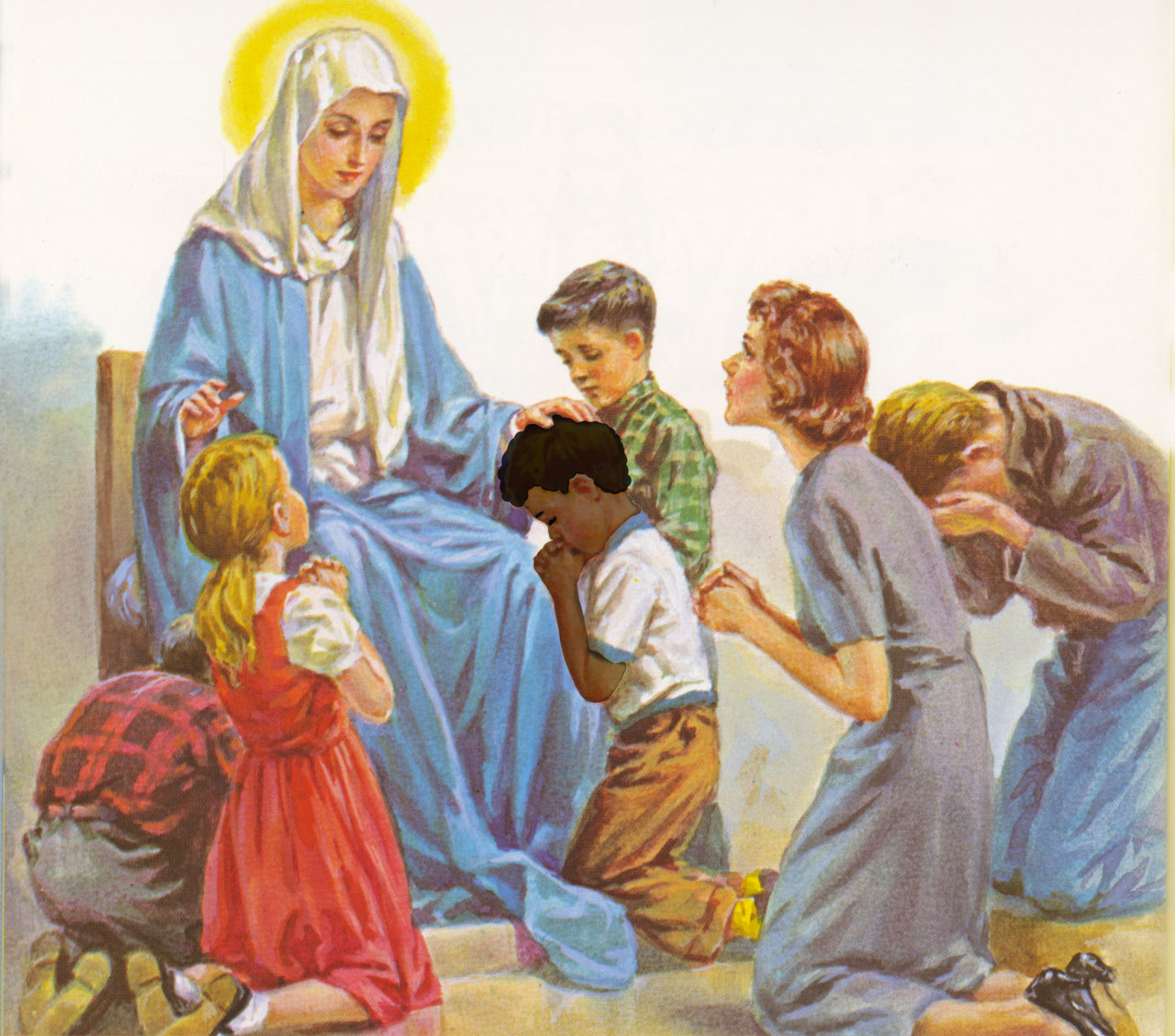
383. — What do we acknowledge by this prayer of the Church: “Holy Mary, Mother of God and our Mother, pray for us, sinners, now and at the hour of our death. Amen”?
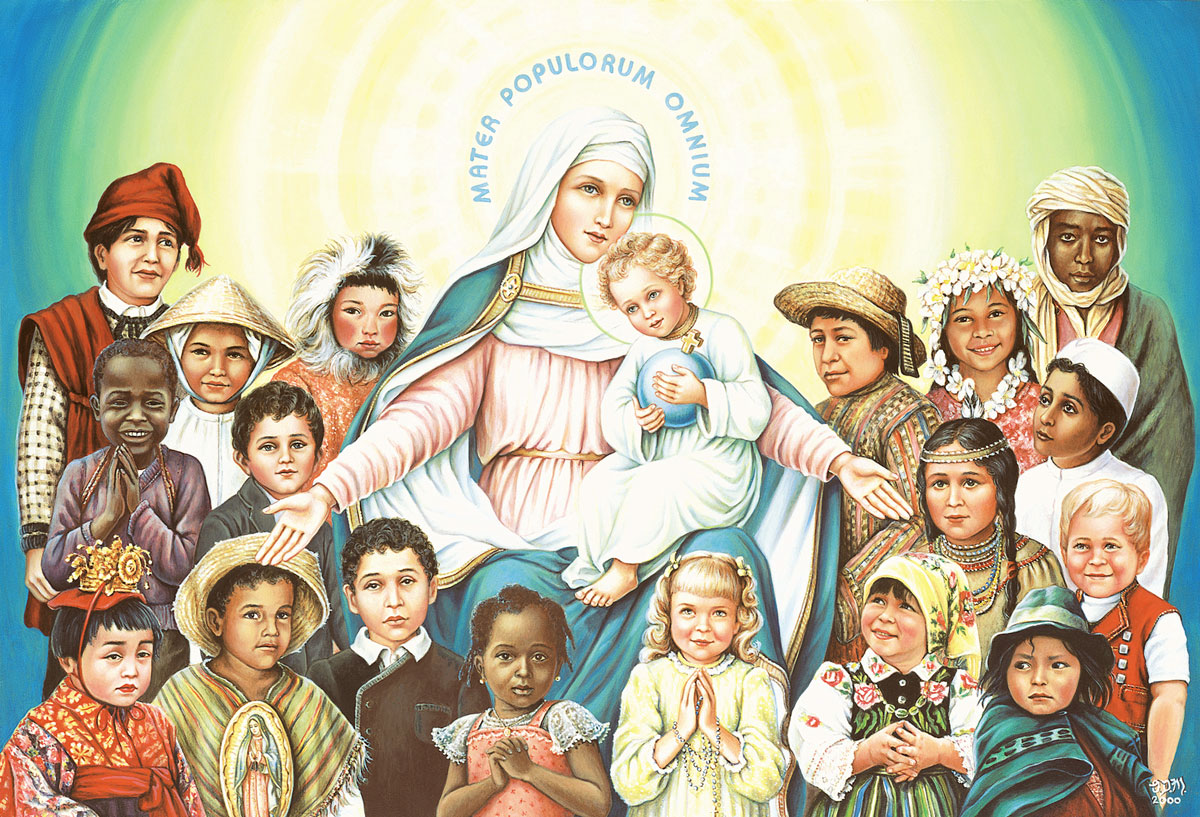
384. — What sentiments should we have for the Blessed Virgin?
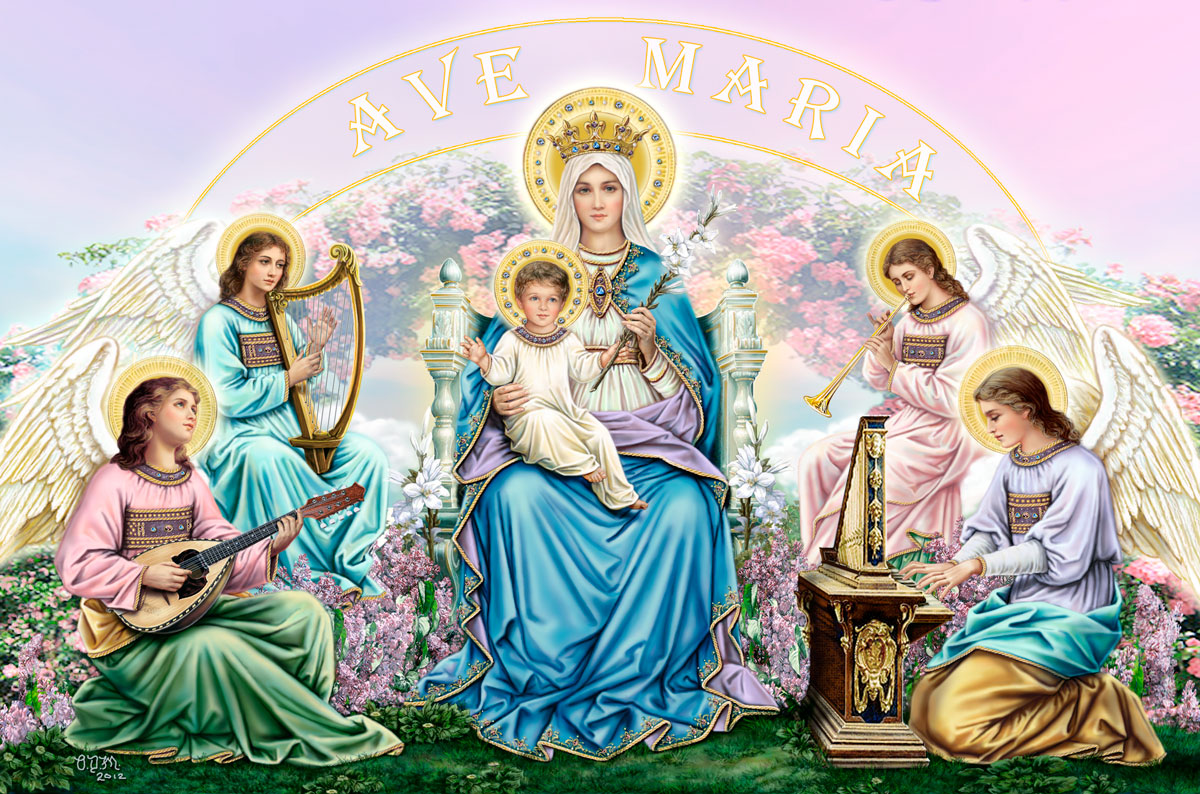
385. — Is the Blessed Virgin truly the Mother of God?

386. — How can we say that the Mother of Jesus Christ is also our Mother?
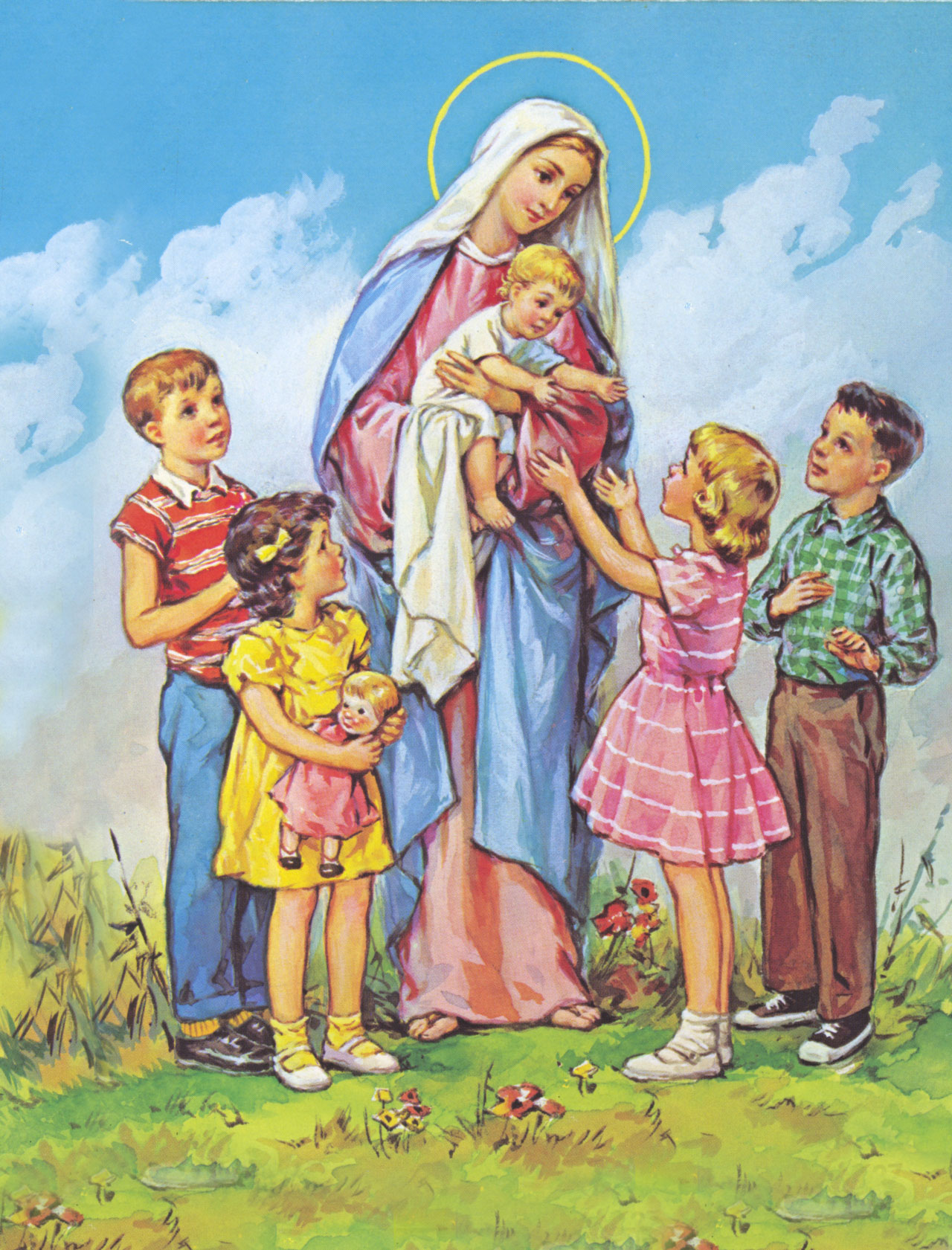
387. — What must we do to show our love to the Blessed Virgin?
To show our love to the Blessed Virgin we must:
1. Imitate Her virtues.
2. Love and serve Her divine Son with all our might, since that is Her dearest wish.
3. Invoke Her frequently.
4. Celebrate Her feasts with piety.
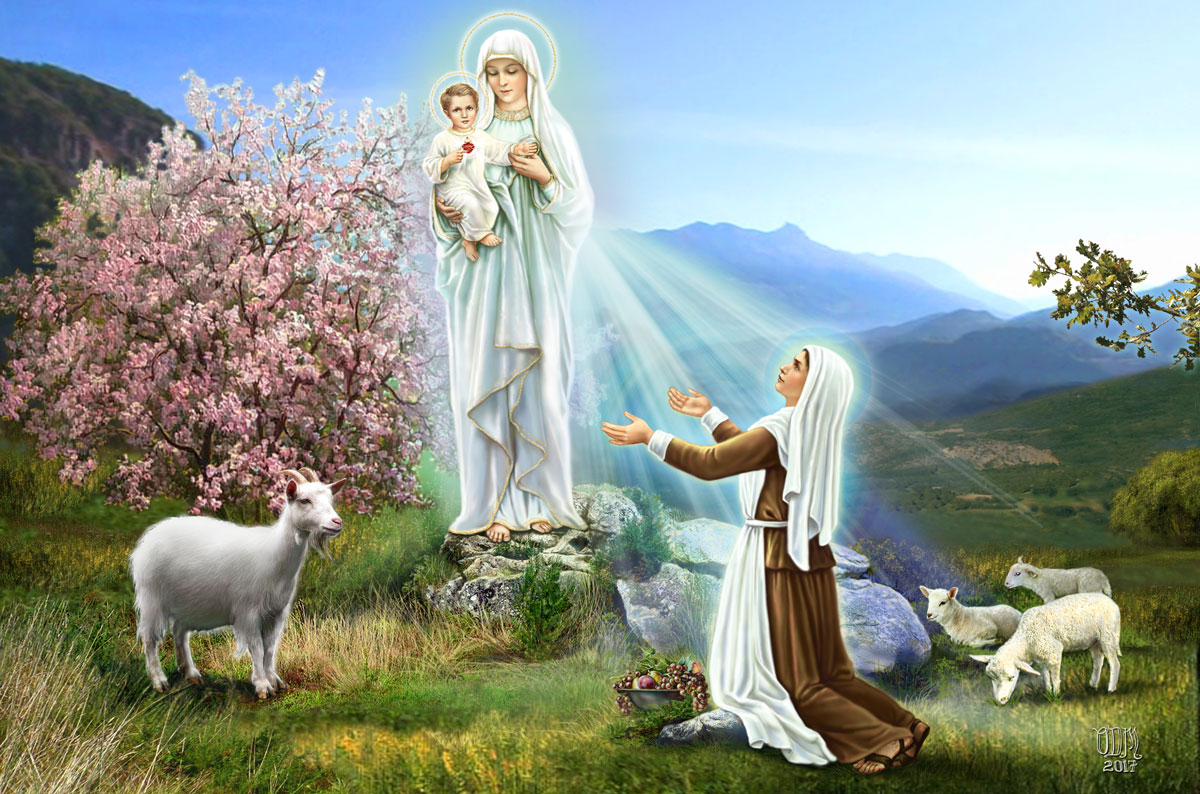
388. — What prayers does the Church especially recommend in honor of the Blessed Virgin?
Click on the dots to match the text to the audio.
Audio of the Lesson
Glossary
Protector means: who protects, who defends someone. The Blessed Virgin, besides being our Mother, has all power over God, whose Mother She is. Her protection is unlimited.
A privilege is a gift, a grace.
To conjure is to pray with great insistence.
To die saintly is to die in a state of grace and with strong sentiments of love for God and regret for our sins.
Lesson 35: The Ten Commandments of God

389. — Is it sufficient to belong to the Church of God to be saved?
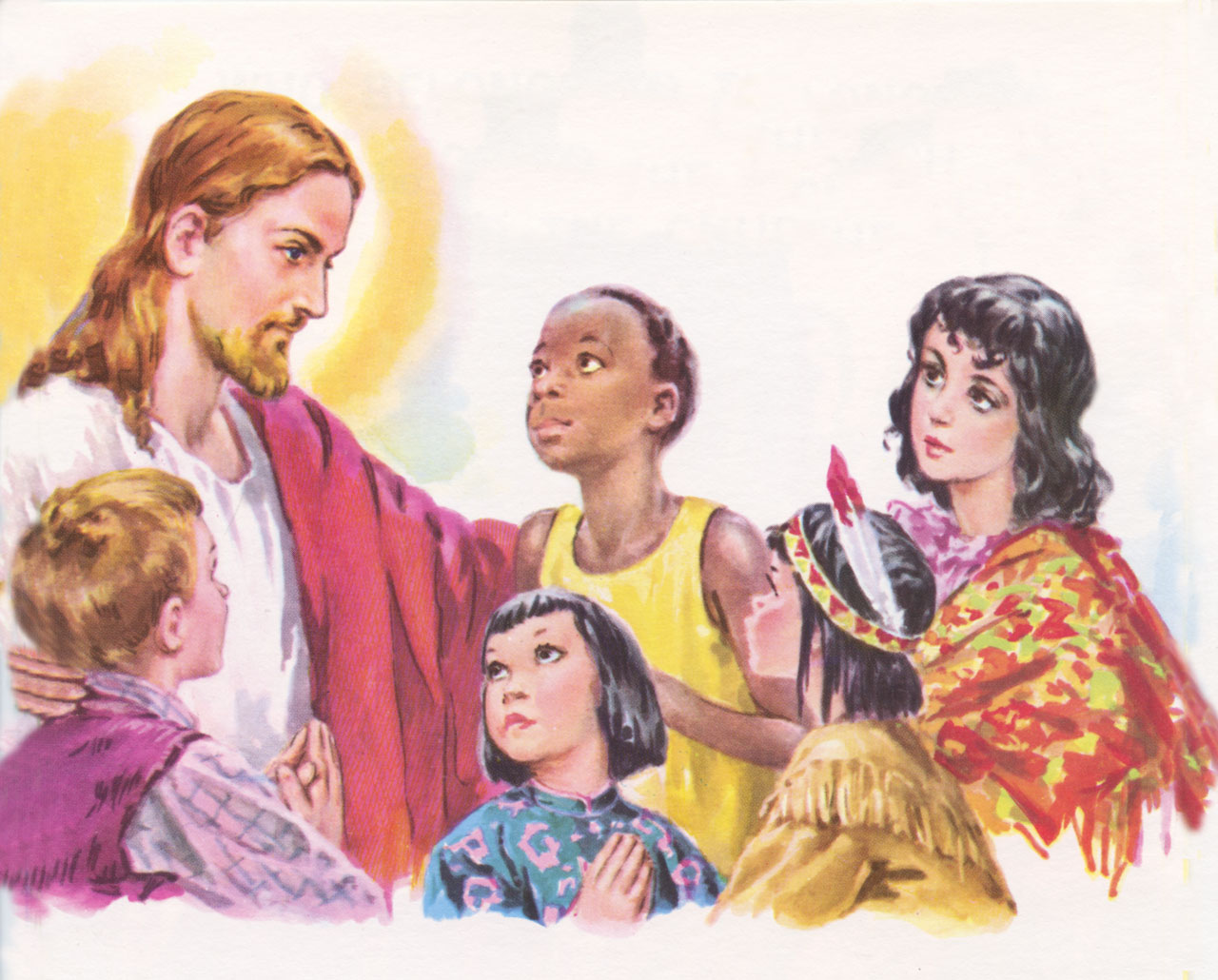
390. — What Commandments contain the whole law of God?
The Commandments which contain the whole law of God are these two:
1. Thou shalt love the Lord thy God with thy whole heart, with thy whole soul, with thy whole strength, and with thy whole mind.
2. Thou shalt love thy neighbor as thyself, for the love of God.
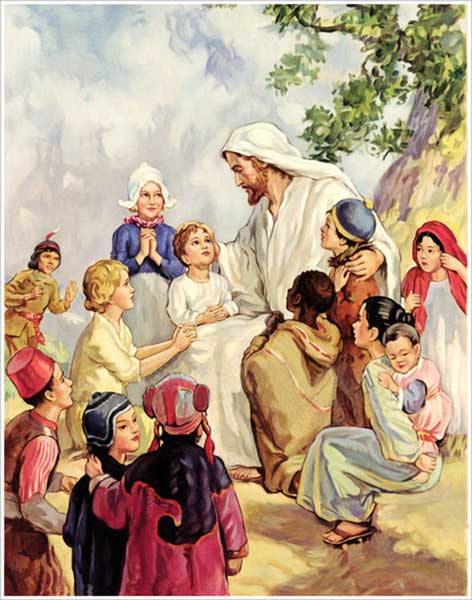
391. — Why do we say that these two Commandments of the love of God and neighbor contain the whole law of God?

392. — Recite the Commandments of God.
1. I am the Lord thy God,
thou shalt not have strange gods before Me.
2. Thou shalt not take the Name of the Lord
thy God in vain.
3. Remember that thou keep holy the Sabbath day.
4. Honor thy father and thy mother,
that thou mayest have a long life.
5. Thou shalt not kill.
6. Thou shalt not commit adultery.
7. Thou shalt not steal.
8. Thou shalt not bear false witness against thy neighbor.
9. Thou shalt not covet thy neighbor’s wife.
10. Thou shalt not covet thy neighbor’s goods.
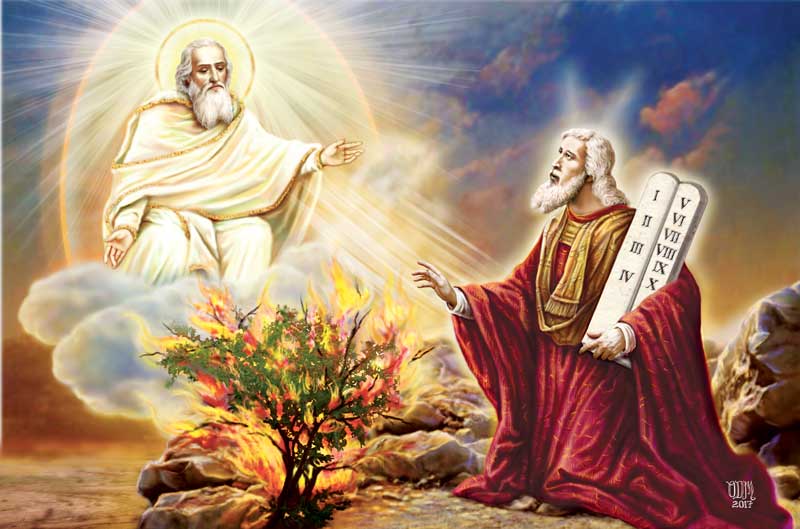
393. — Who gave the ten Commandments?
Click on the dots to match the text to the audio.
Audio of the Lesson
Glossary
Mount Sinai is a mountain in present-day Egypt.
Lesson 36: First Commandment of God

394.— What is the first Commandment of God?

395. — How does this first Commandment help us to keep the great Commandment of the love of God?

396. — How do we adore God?
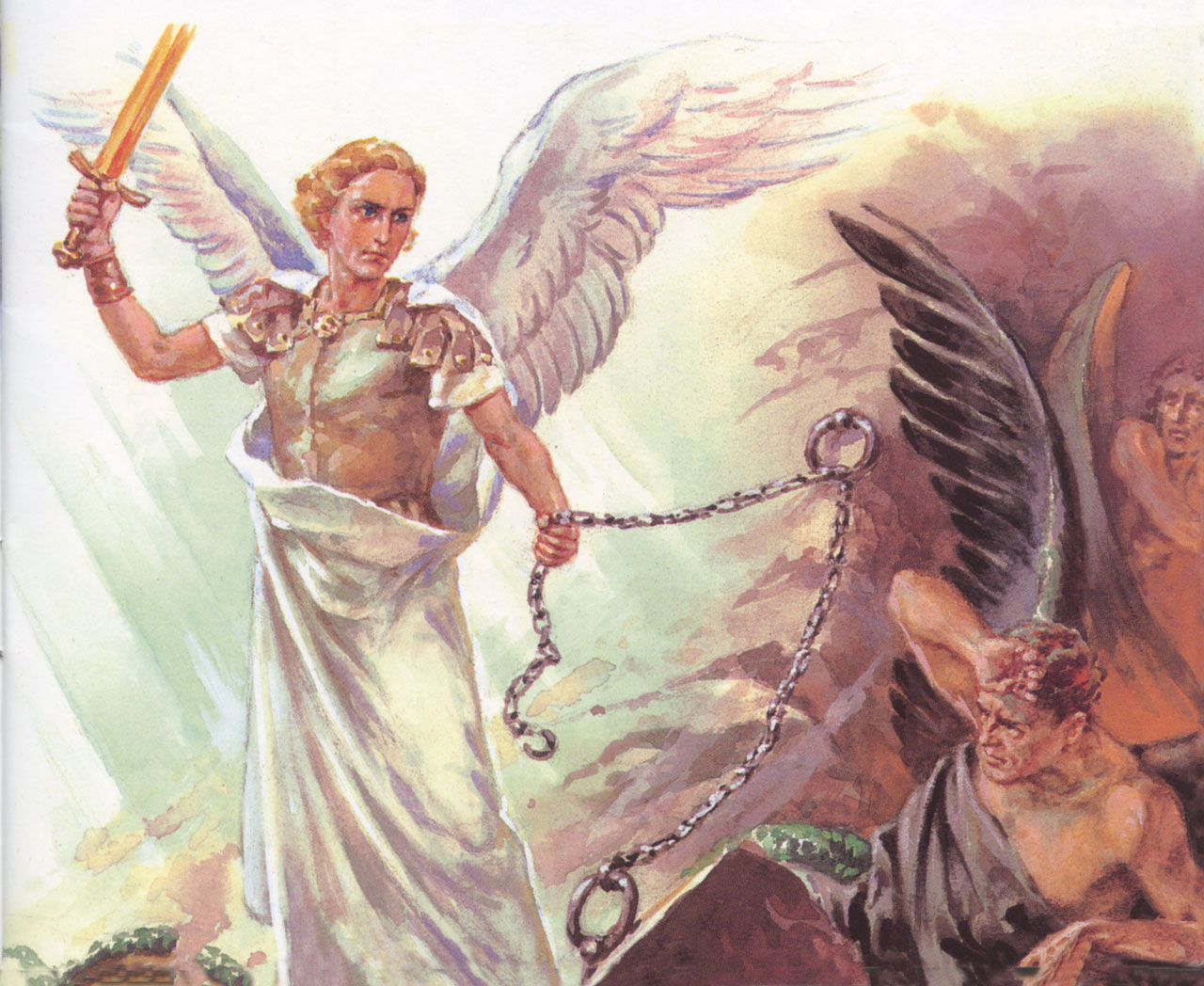
397. — How may the first Commandment of God be broken?
The first Commandment of God may be broken:
1. By rendering to a creature the honor which belongs to God alone.
2. By rendering false worship to God.
3. By attributing to a creature a perfection or a power which belongs to God alone.

398. — What does the first Commandment forbid?
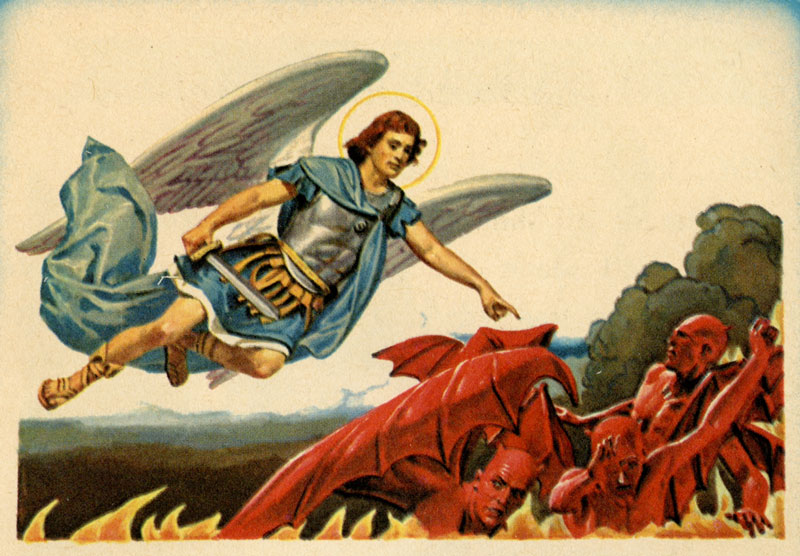
399. — What is idolatry?
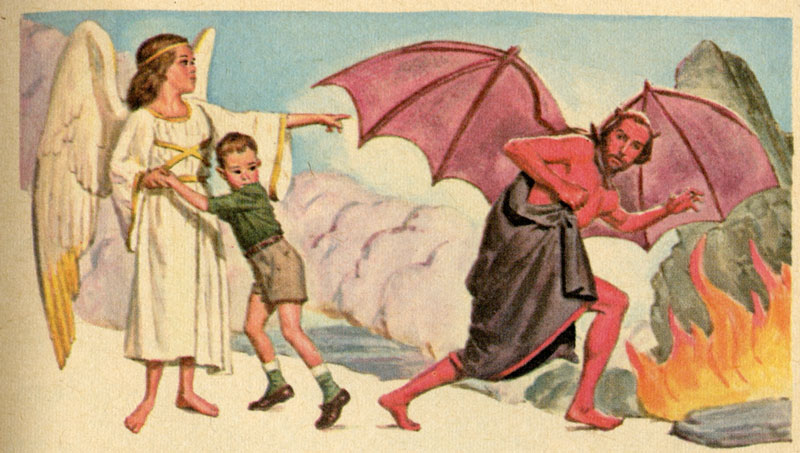
400. — What is superstition?

401. — What are the chief sins of superstition?

402. — What do we mean by vain observances?

403. — What is divination, or fortune-telling?
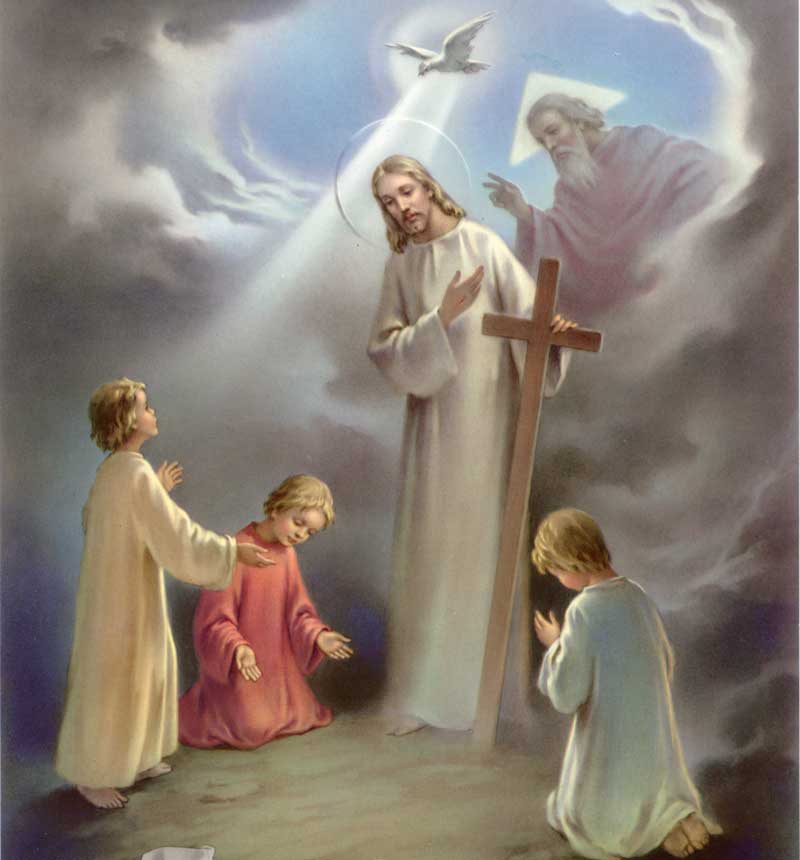
404. — Is it allowed to use witchcraft and spells, or to believe in dreams or fortune-tellers?
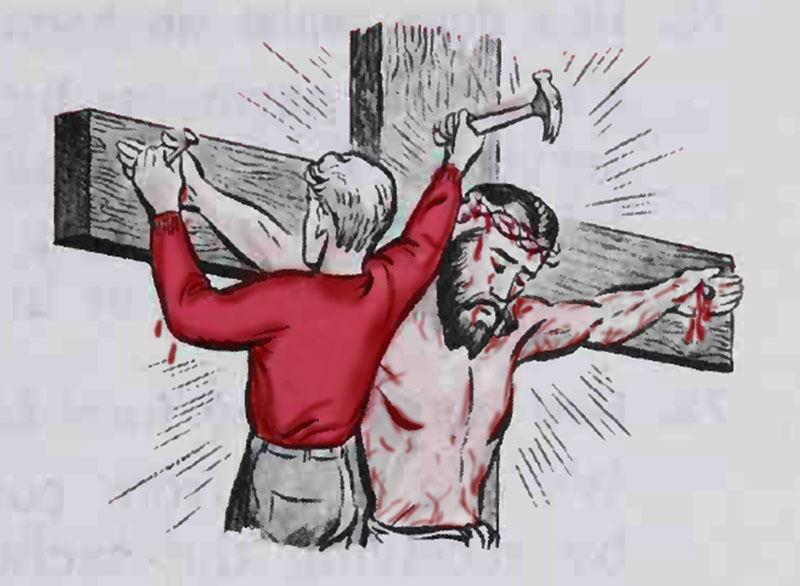
405. — What is black magic?

406. — What is spiritism?

407. — What is sacrilege?

408. — Do we sin against the first Commandment of God by sinning against faith, hope and charity?
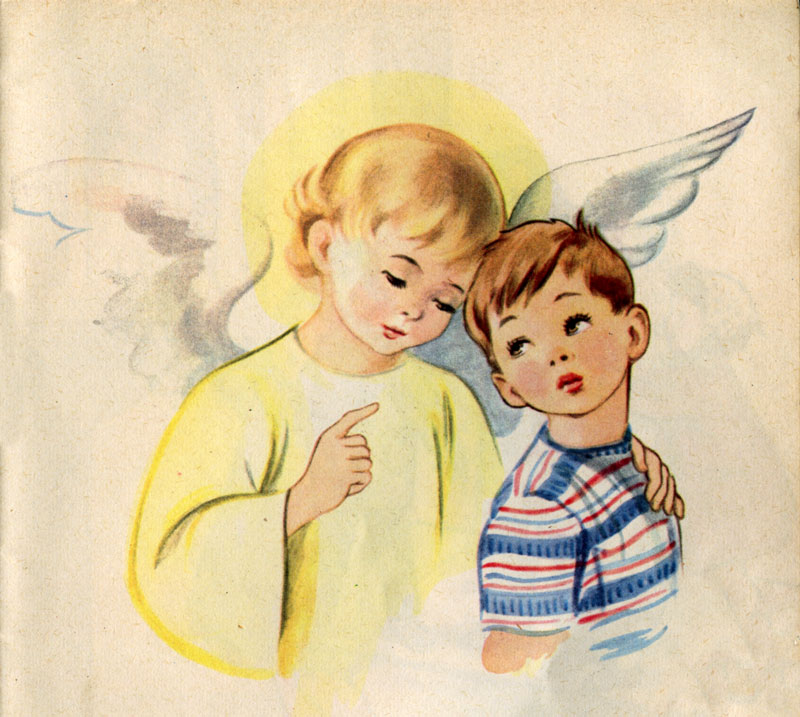
409. — How do we sin against faith?
We sin against faith when we:
1. Refuse to believe what God teaches us through His Church.
2. Willfully doubt any revealed truth.
3. Are ashamed or afraid to pass for a Christian, or formally deny the faith.
4. Neglect to learn Christian doctrine sufficiently.
5. Follow a way of life that is not in conformity with Christian beliefs.
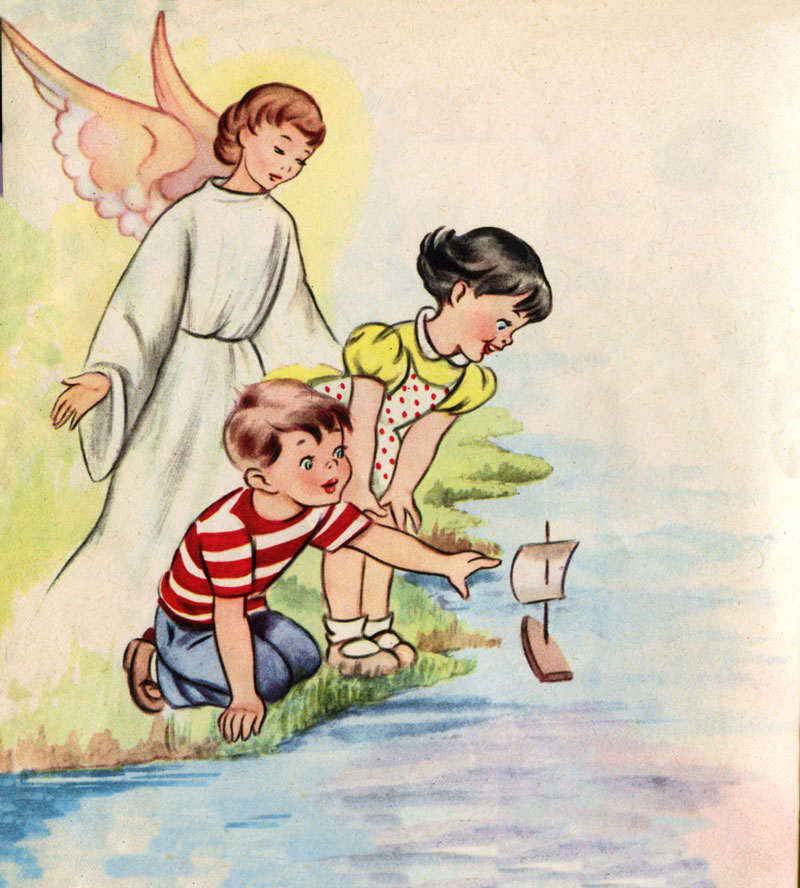
410. — What are the sins against hope?
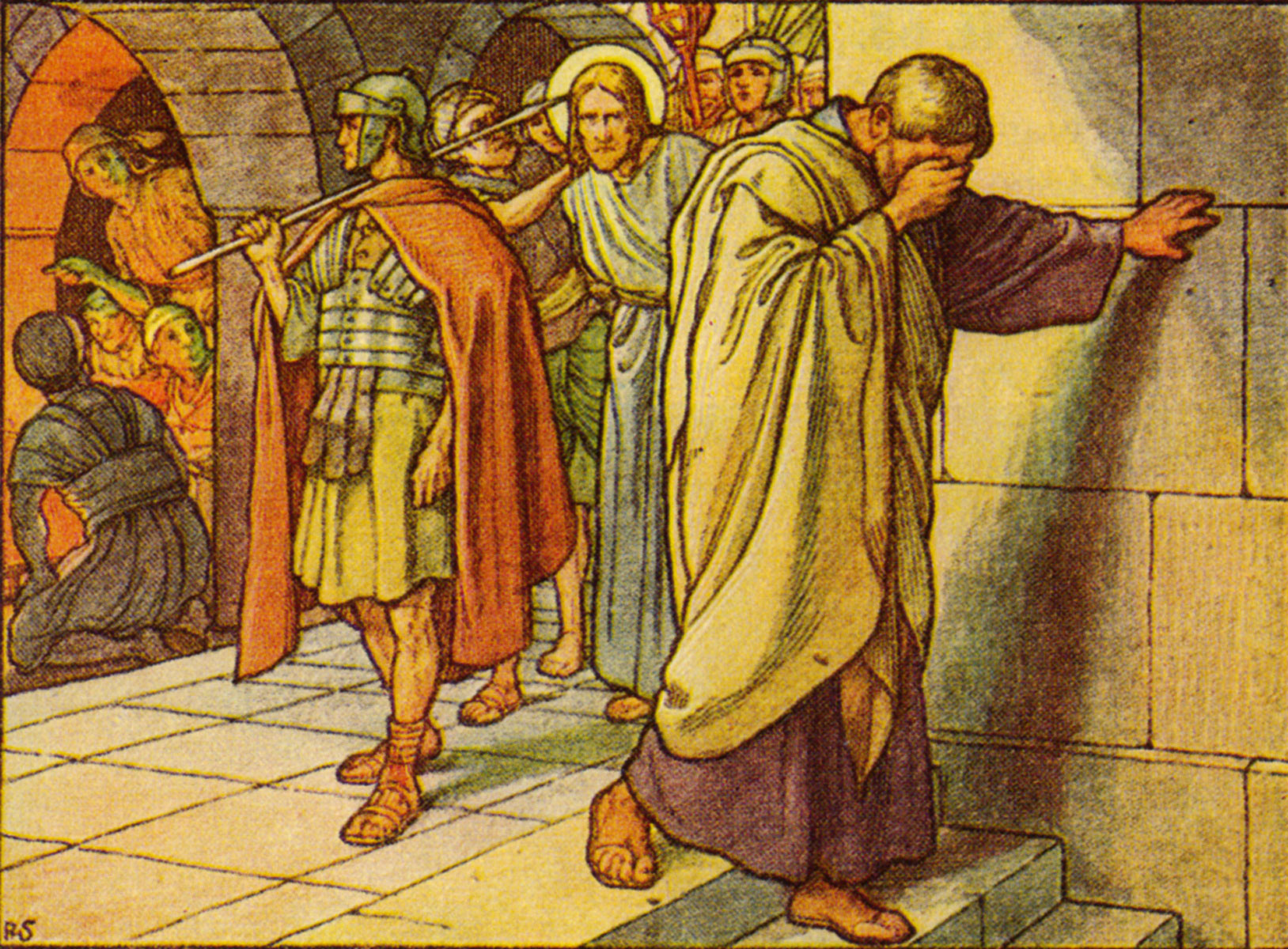
411. — What is presumption?
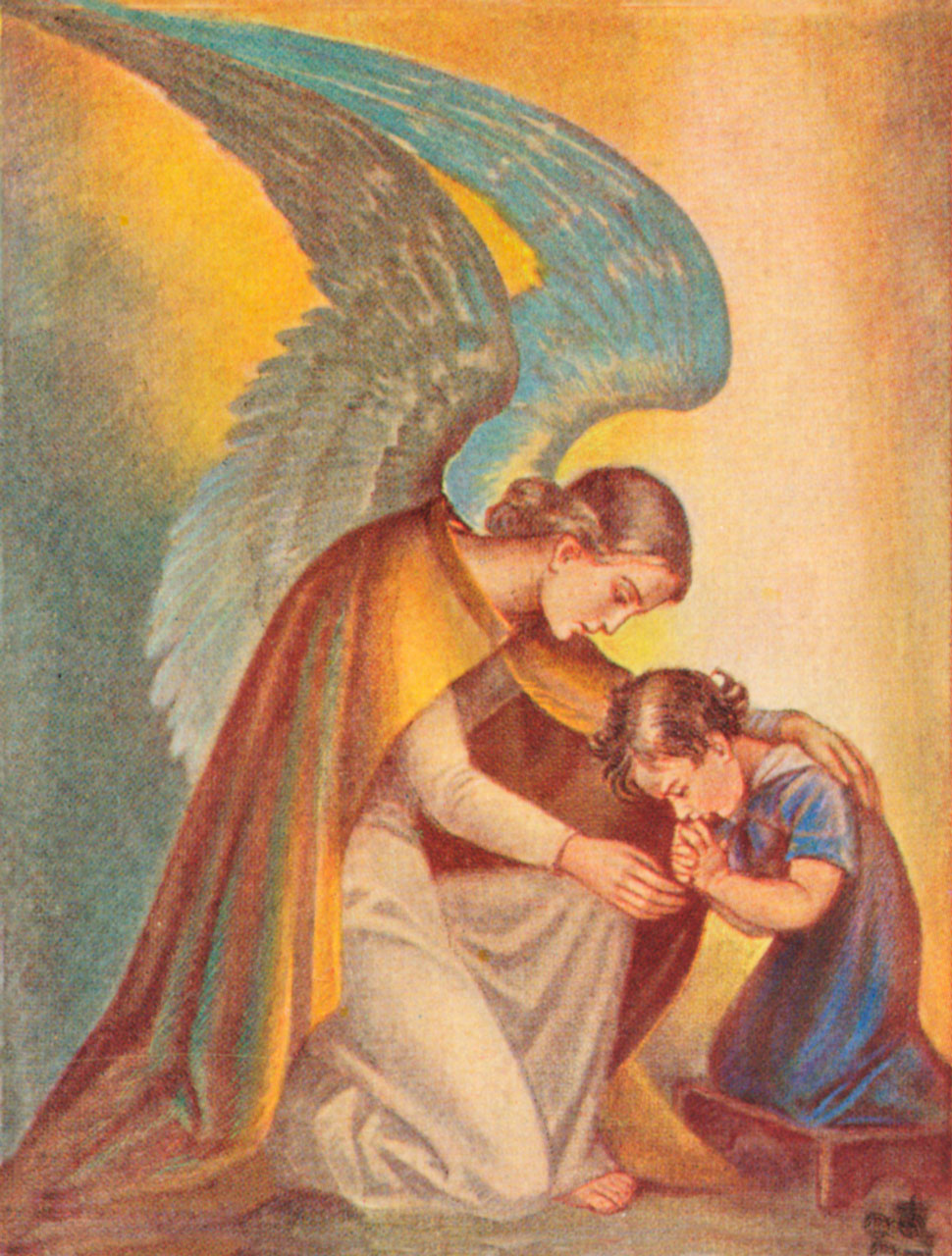
412. — What is despair?
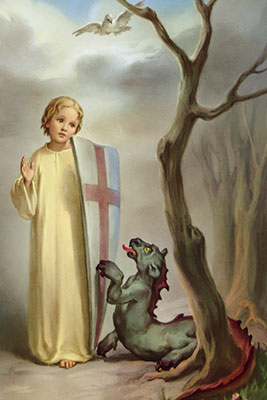
413. — How do we sin against the love of God?
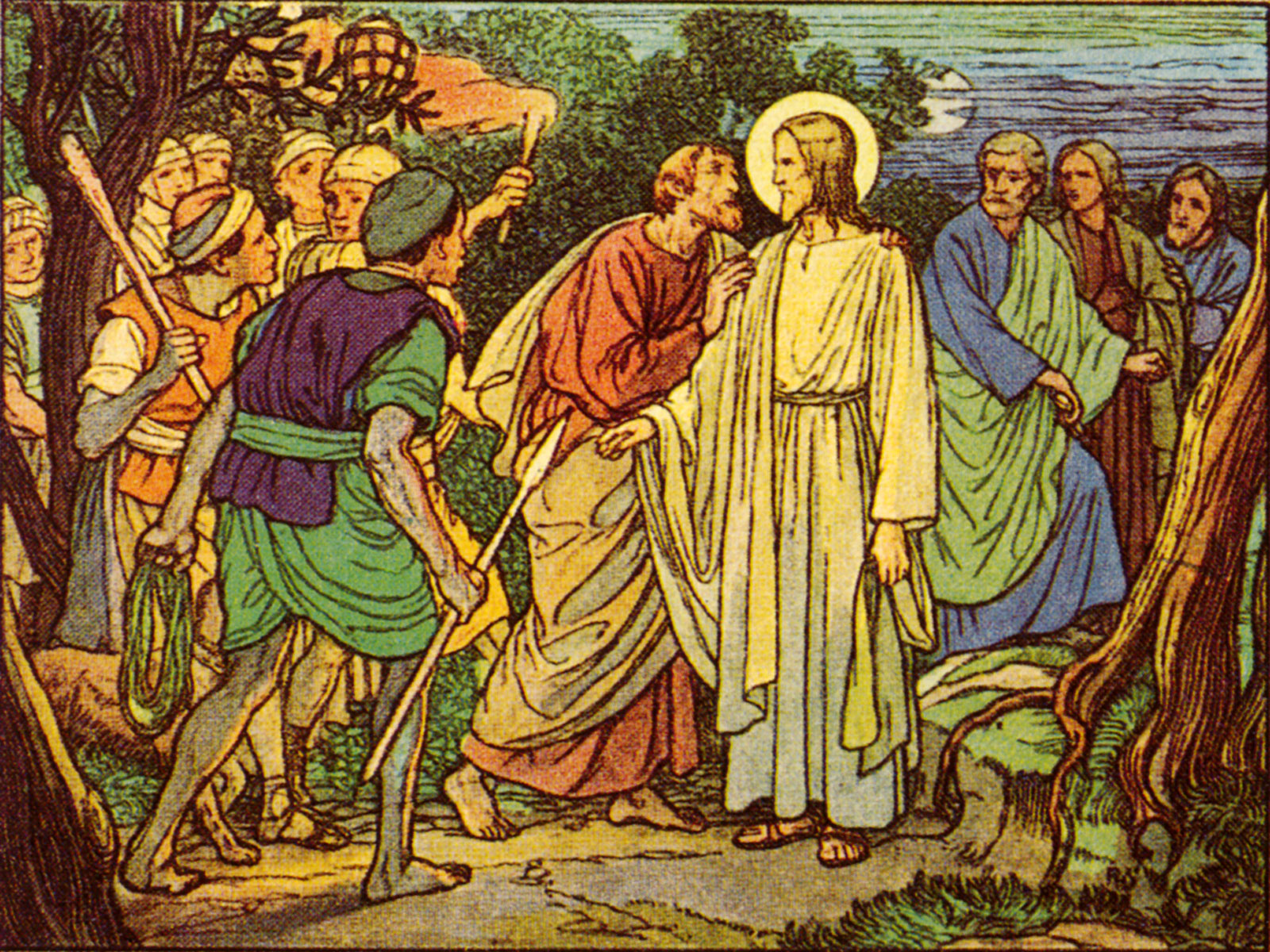
414. — Where does the source of sin lie?
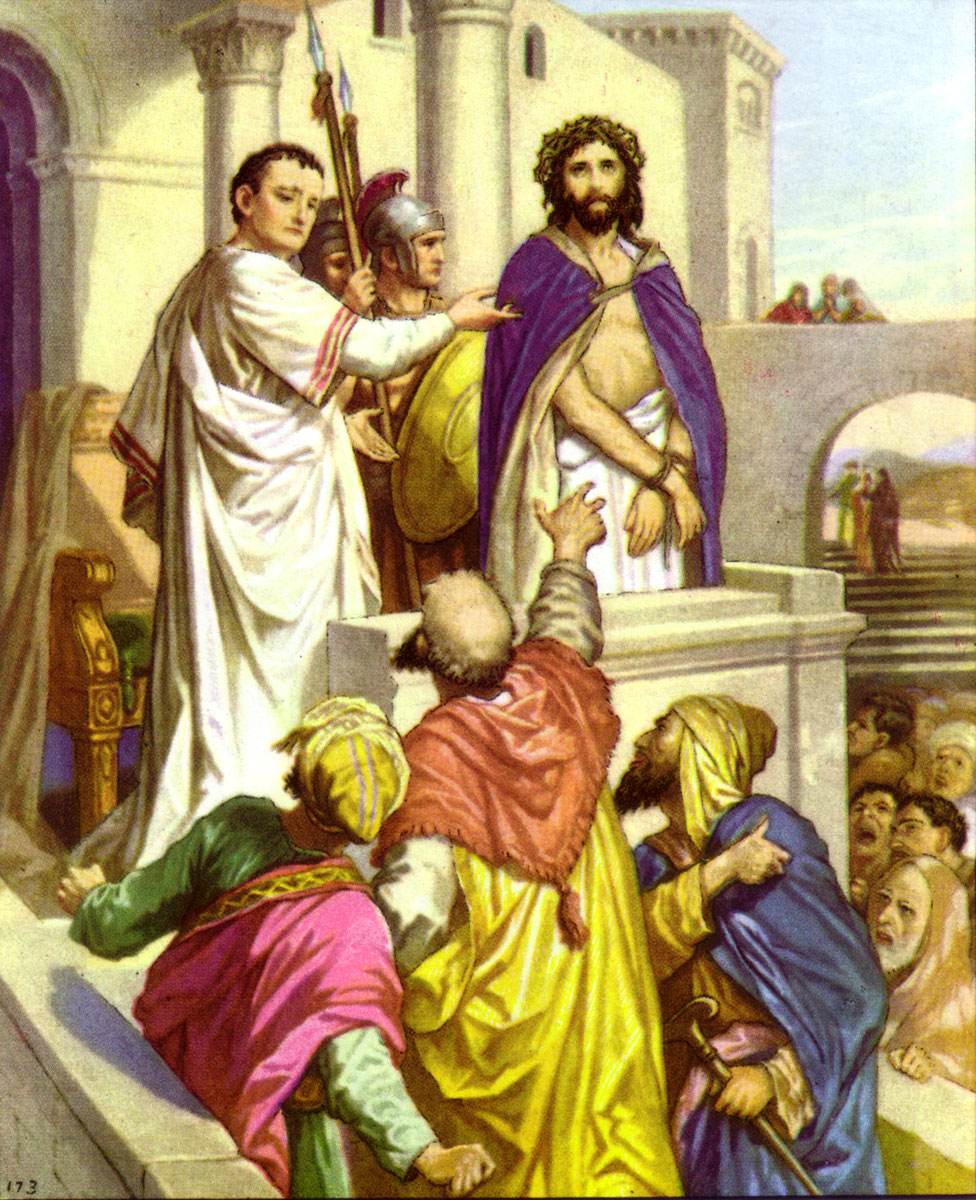
415. — What is an attachment?
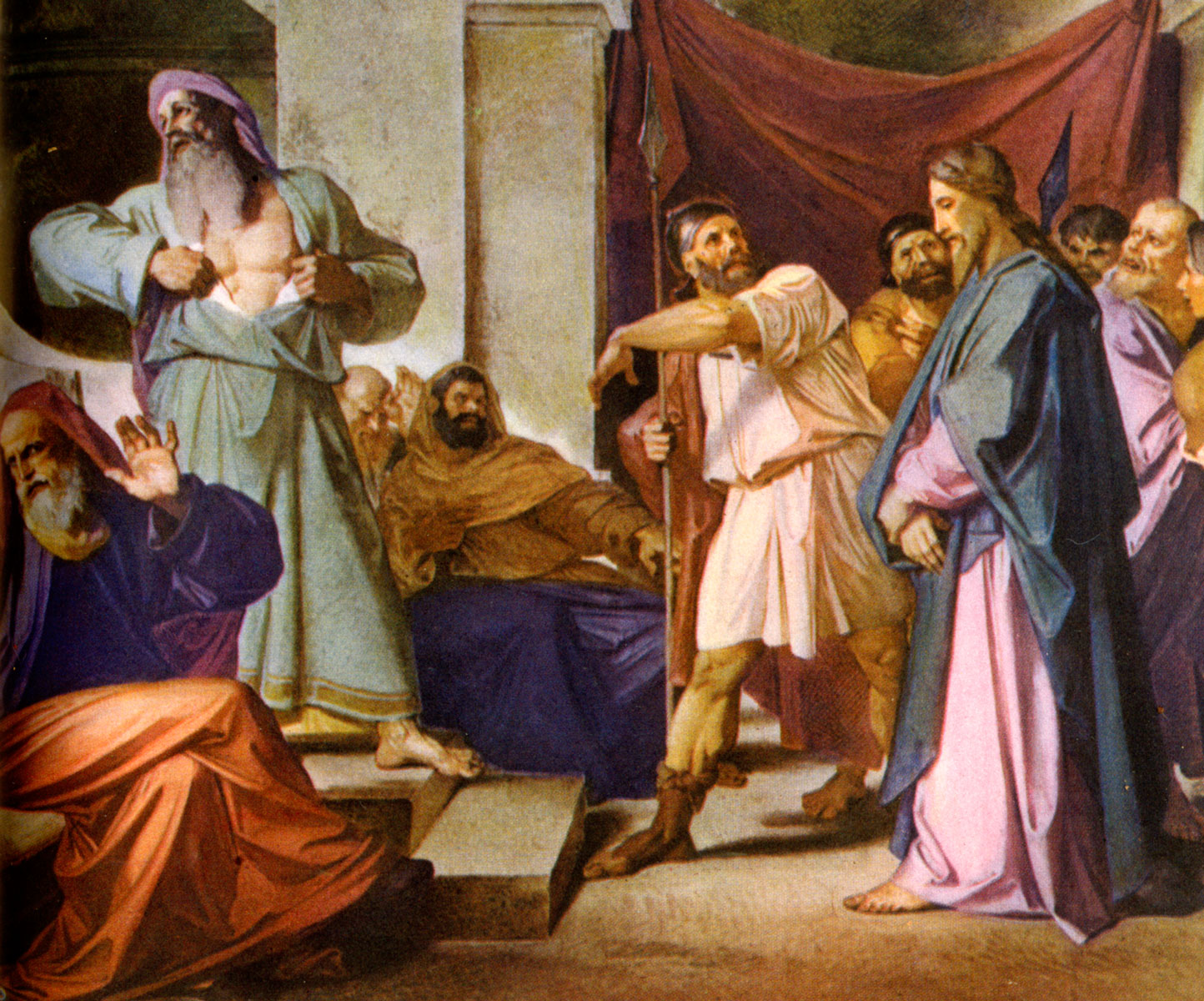
416. — How is attachment comparable to idolatry?
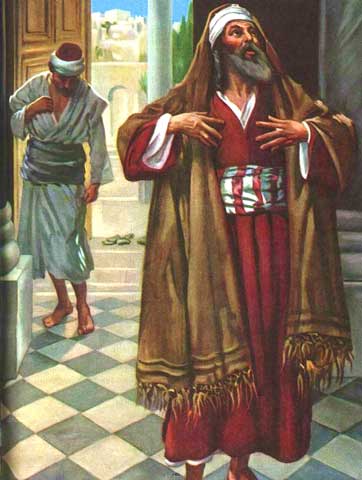
417. — List some of the idols which have overrun the Christian world.
Click on the dots to match the text to the audio.
Audio of the Lesson
Glossary
Violating a commandment is the same as disobeying a commandment.
Witchcraft is the name given to all the operations of sorcerers to cast or conjure spells, to predict the future, to harm an enemy, etc.
A temerarious hope is a hope without sufficient reason.
To rely on the mercy of God as a license to commit sin is to allow oneself to commit evil by saying, “God is so good that He will always forgive me.”
Click here to download the complete Catechism Course.
This course is offered to you free of charge by Editions Magnificat.
You may download and print it for your personal use.
If you wish to make multiple copies, please request permission from:
apostles@magnificat.ca
THANK YOU!
© All rights reserved.
“If you love Me, keep My commandments.”
Saint John 14:15
